Special Report
50 Surprising Historical Facts About the Nobel Peace Prize
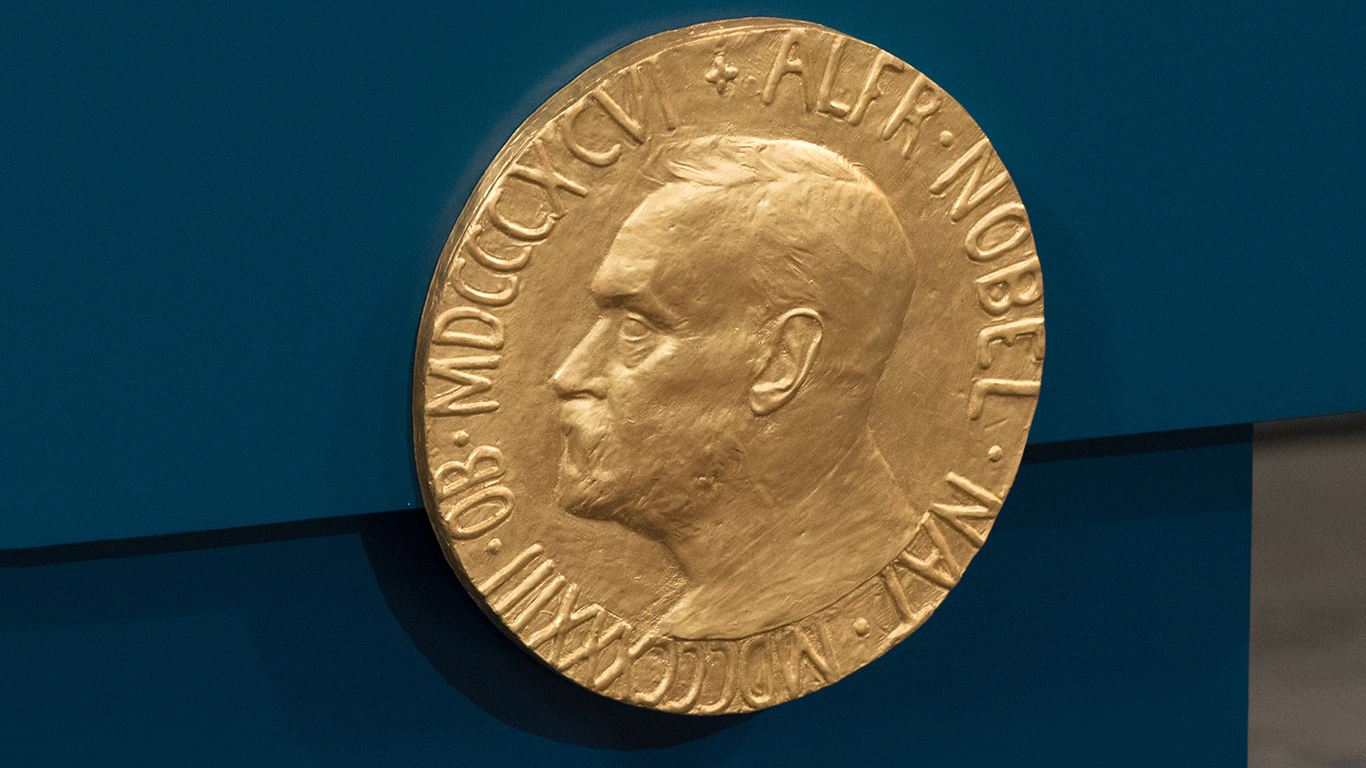
Published:
Last Updated:

The Nobel prize is one of the most prestigious awards in the world. Winning it is the culmination of one’s life work in seeking to better humankind in the areas of chemistry, economics, literature, peace, physics, and physiology or medicine. Of the six categories, the Nobel Peace Prize is probably the most anticipated. And at times, the award has been controversial.
The Nobel prizes were established by Swedish businessman and pacifist Alfred Nobel, who created a fund in his will before his death in 1896 to generate interest that will be “annually distributed in the form of prizes to those who, during the preceding year, shall have conferred the greatest benefit on mankind.”
The 2019 Nobel Peace Prize is scheduled to be announced on Oct. 11, and 24/7 Wall St. is using this occasion to compile a list of 50 surprising facts about the prize. We reviewed a variety of sources to create our list, including the Nobel Prize website. There are 301 candidates for the 2019 Nobel Peace Prize — 223 individuals and 78 organizations.
The five-member Nobel Committee — all Norwegian and chosen by the Norwegian Storting, or parliament — selects the Nobel prize winners. The committee sifts through nominations submitted by elected officials, peace group advocates, foreign policy experts, university professors, and former winners of the prize. All nominations are made online and submitted no later than Jan. 31. The winners are announced on the first Friday of the first full week of October.
The Nobel Peace Prize has been awarded 99 times since 1901. The recipients of the award are called laureates, which refers to those being acknowledged by a laurel wreath. This was an honor bestowed on winners of athletic and poetic competitions in ancient Greece.
Click here to see 50 surprising historical facts about the Nobel Peace Prize.
In the first years of the peace prize before World War I, it was often awarded to founders of organized peace movements. After WWI, it was presented to those seeking peace and justice through diplomacy and international treaties. Following World War II, the prize was awarded for efforts in arms control, democracy, and human rights. In the latter part of the 20th century, the Nobel Committee endeavored to consider people from many countries for the award. In the 21st century, the prize has been given to those raising awareness about threats to the environment. These are the countries that are doing the most and least to protect the environment.
Our list contains some of the greatest civil and human rights figures of the 20th century, including Martin Luther King Jr. and Nelson Mandela. Surprisingly, Mahatma Gandhi, whose nonviolent path to Indian independence was an inspiration for King and Mandela, never won the Nobel Peace Prize. These are the most important civil rights leaders of the 20th century.
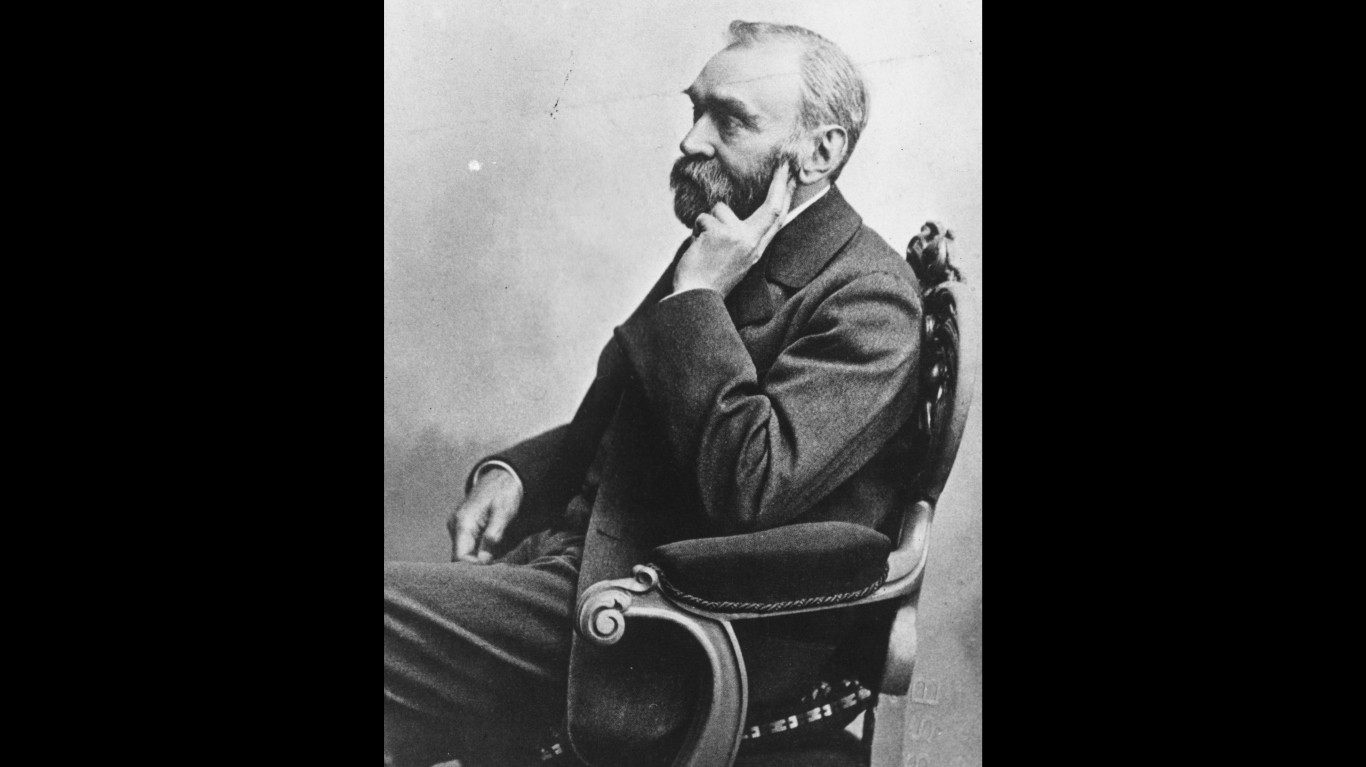
Nobel’s wealth
Alfred Nobel was one of the wealthiest men in Sweden and the world at the time of his death in 1896. He had considerable holdings in mining companies and derived revenues from his patents. He also owned a yacht with an aluminium keel, the first of its kind.
[in-text-ad]
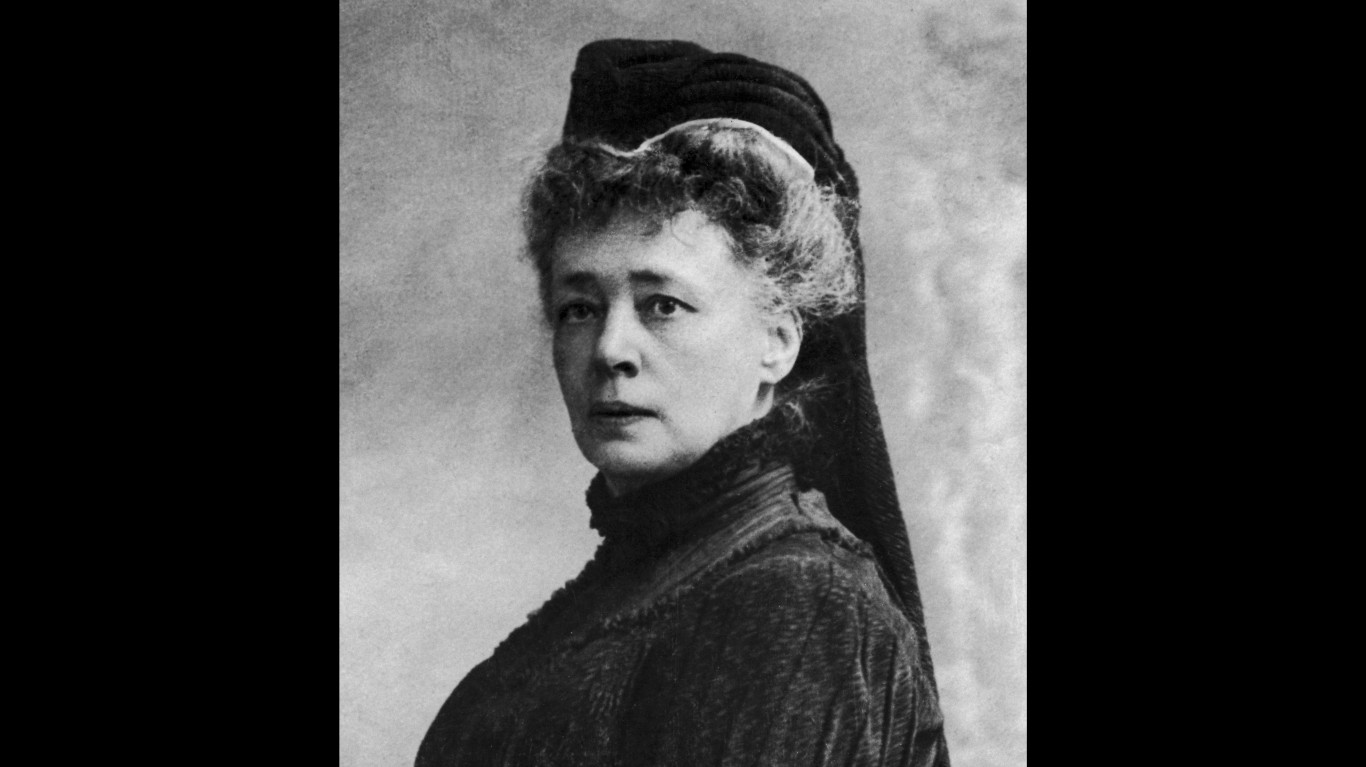
Pacifist influence
Nobel was influenced by Austrian peace activist Bertha von Suttner, whom he corresponded with for many years. Von Suttner might be the inspiration for the creation of the Nobel Peace Prize. She became the first woman to win it in 1905.
Why Norway?
Even though Nobel was Swedish, he wanted the Norwegian Storting, or parliament, to choose members for the committee to award the Nobel Peace Prize, with the other Nobel prizes awarded by Swedish committees. It is not known why he decided on this. Nobel may have believed Norway to be more dedicated to peace than Sweden. He also may have been influenced by his admiration for Norwegian author and pacifist Bjørnstjerne Bjørnson.
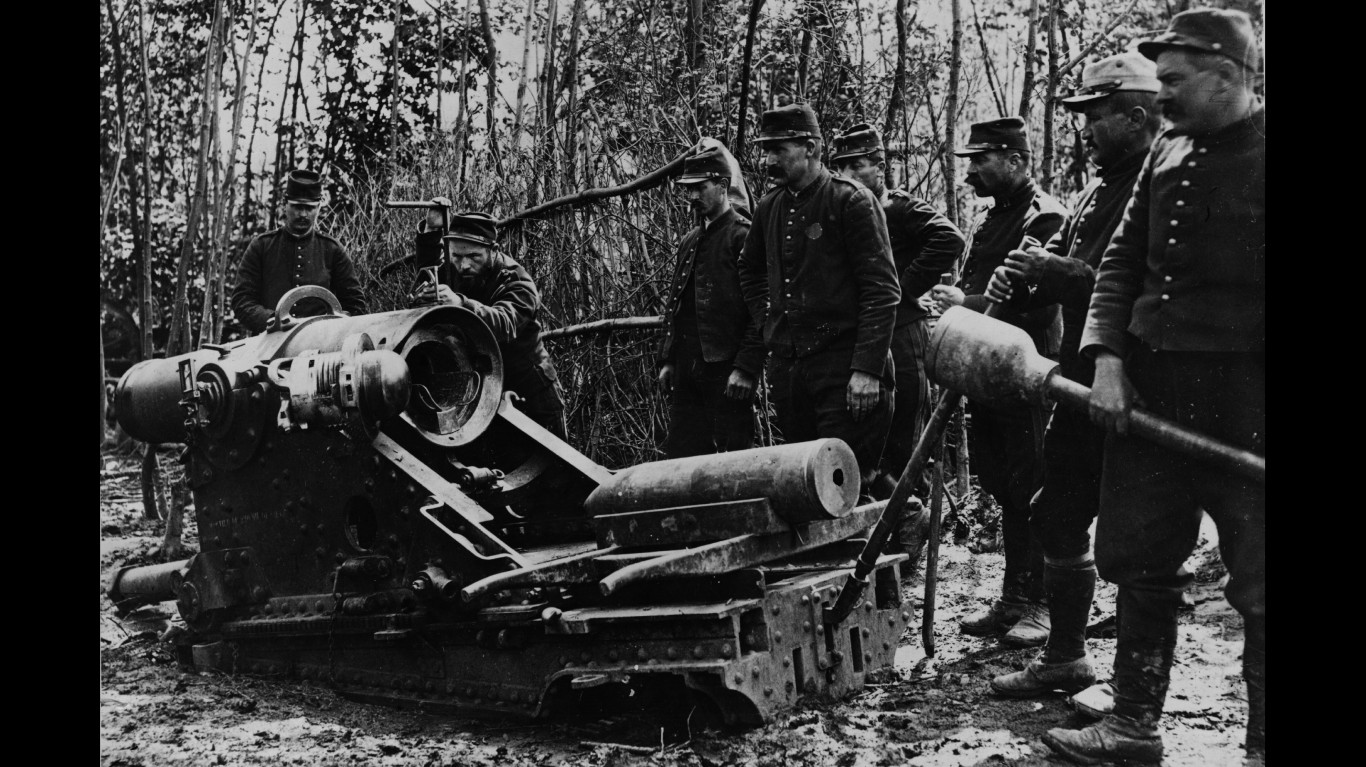
No prize some years
The Nobel Peace Prize was not awarded 19 times: in 1914-1916, 1918, 1923, 1924, 1928, 1932, 1939-1943, 1948, 1955-1956, 1966-1967, and 1972. Not surprisingly, the prize was not awarded during many of the years of the world wars. If the Nobel Foundation doesn’t deem anyone worthy of the peace prize in a given year, none is awarded, and the prize money is added to the next year a winner is named.
[in-text-ad-2]
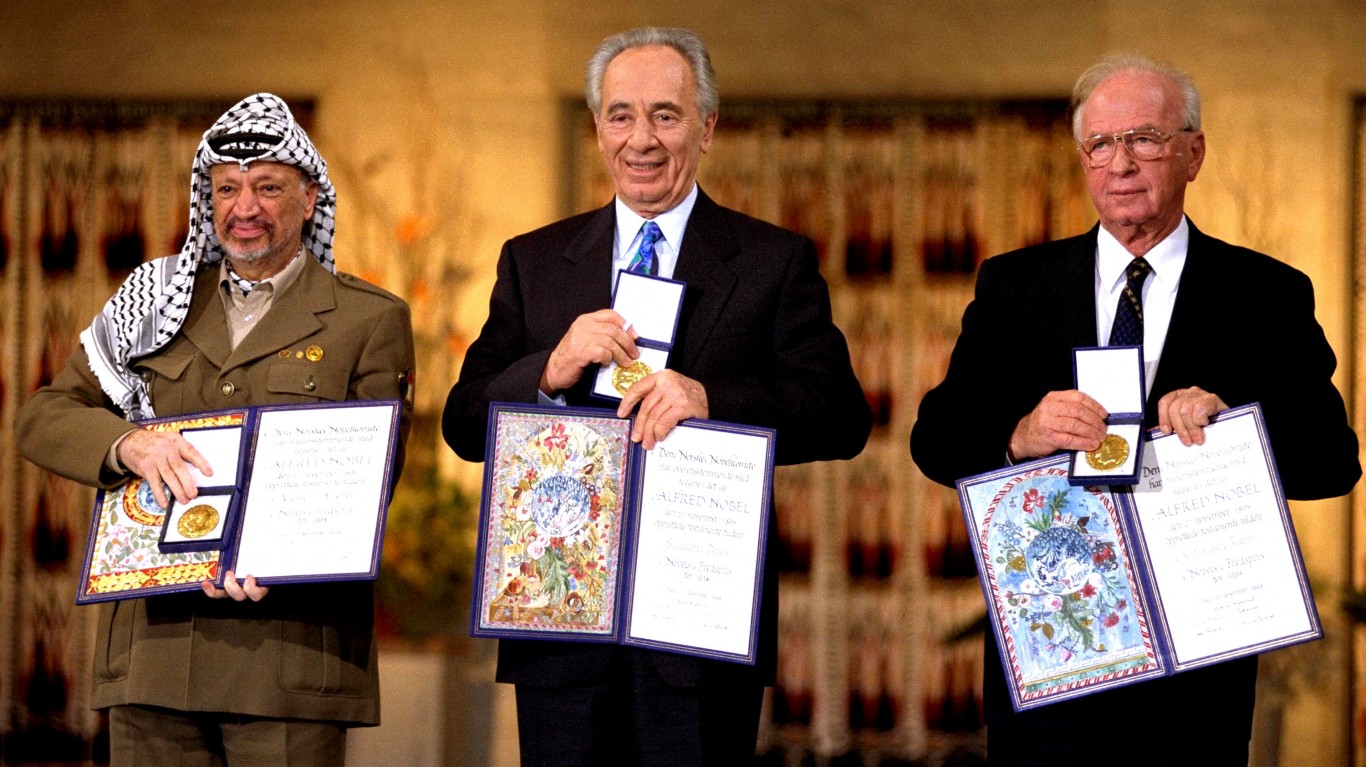
Shared by three
The prize has been shared among three people twice — the 1994 Nobel Peace Prize went to Yasser Arafat, Shimon Peres, and Yitzhak Rabin, and the 2011 Nobel Peace Prize was awarded to Ellen Johnson Sirleaf, Leymah Gbowee, and Tawakkol Karman.
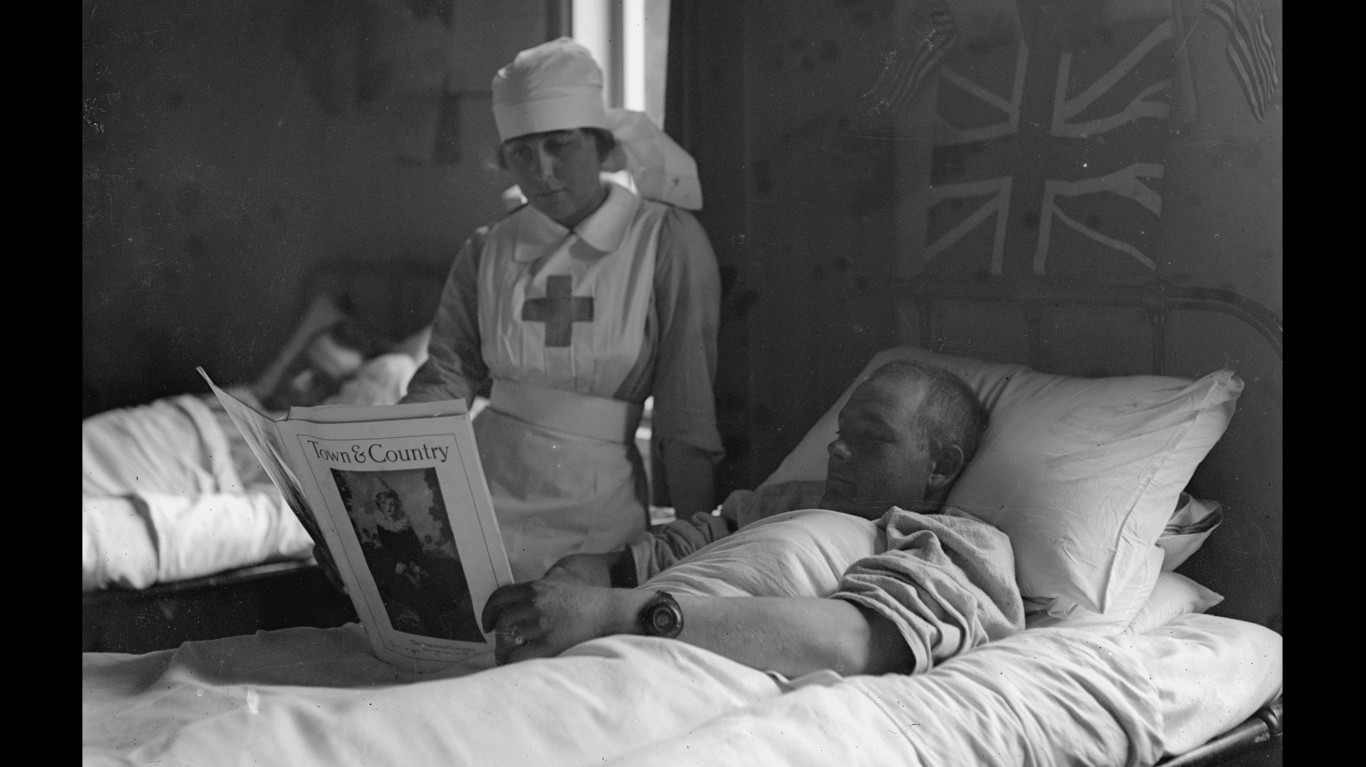
Red Cross honored
The Comité international de la Croix Rouge, also known as the International Committee of the Red Cross, was awarded the prize in 1917, 1944, and 1963, more than any other individual or group.
[in-text-ad]
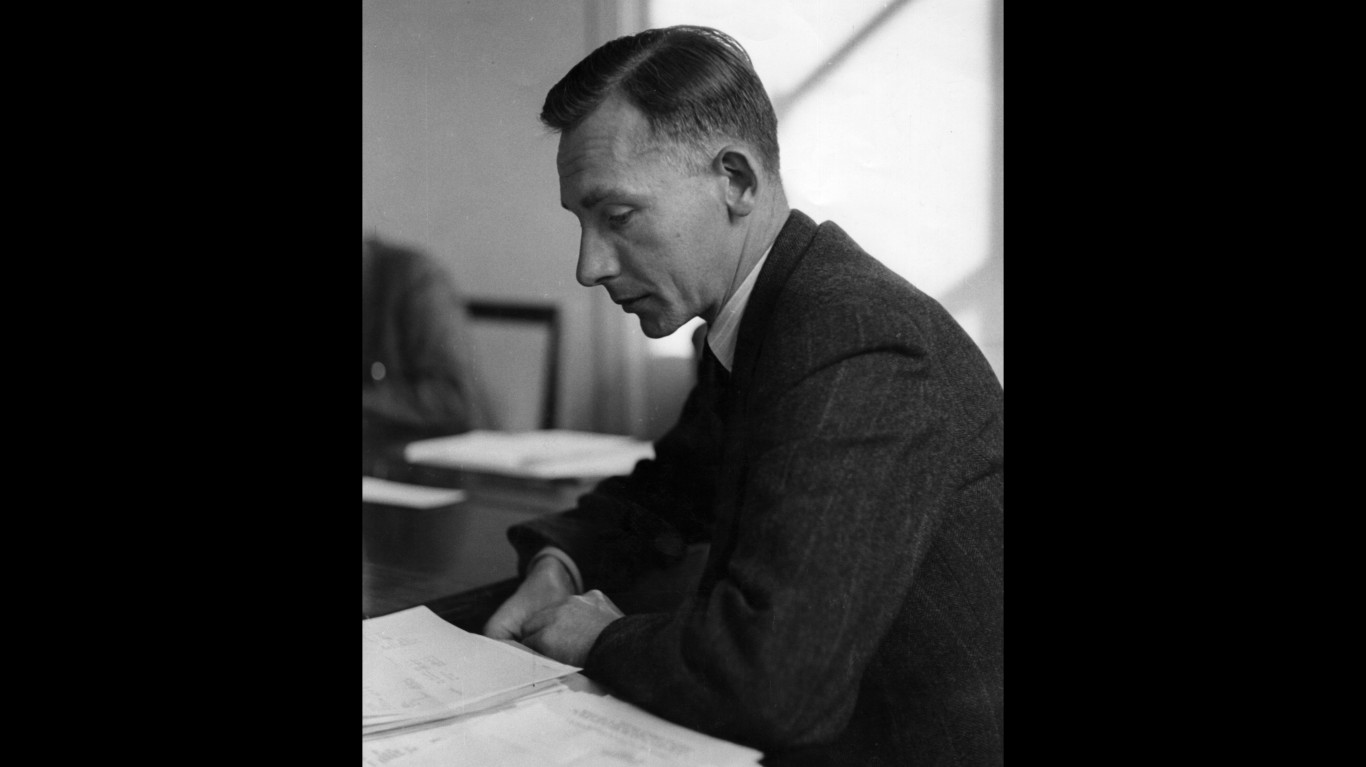
Oldest recipient
The oldest Nobel Peace Prize laureate thus far is Joseph Rotblat, who was 87 when he was awarded the prize in 1995. Rotblat, a physicist, founded the Pugwash Conferences on Science and World Affairs,which advocates for eliminating nuclear weapons and other weapons of mass destruction. He was the only scientist who worked on the Manhattan Project to resign over moral considerations.
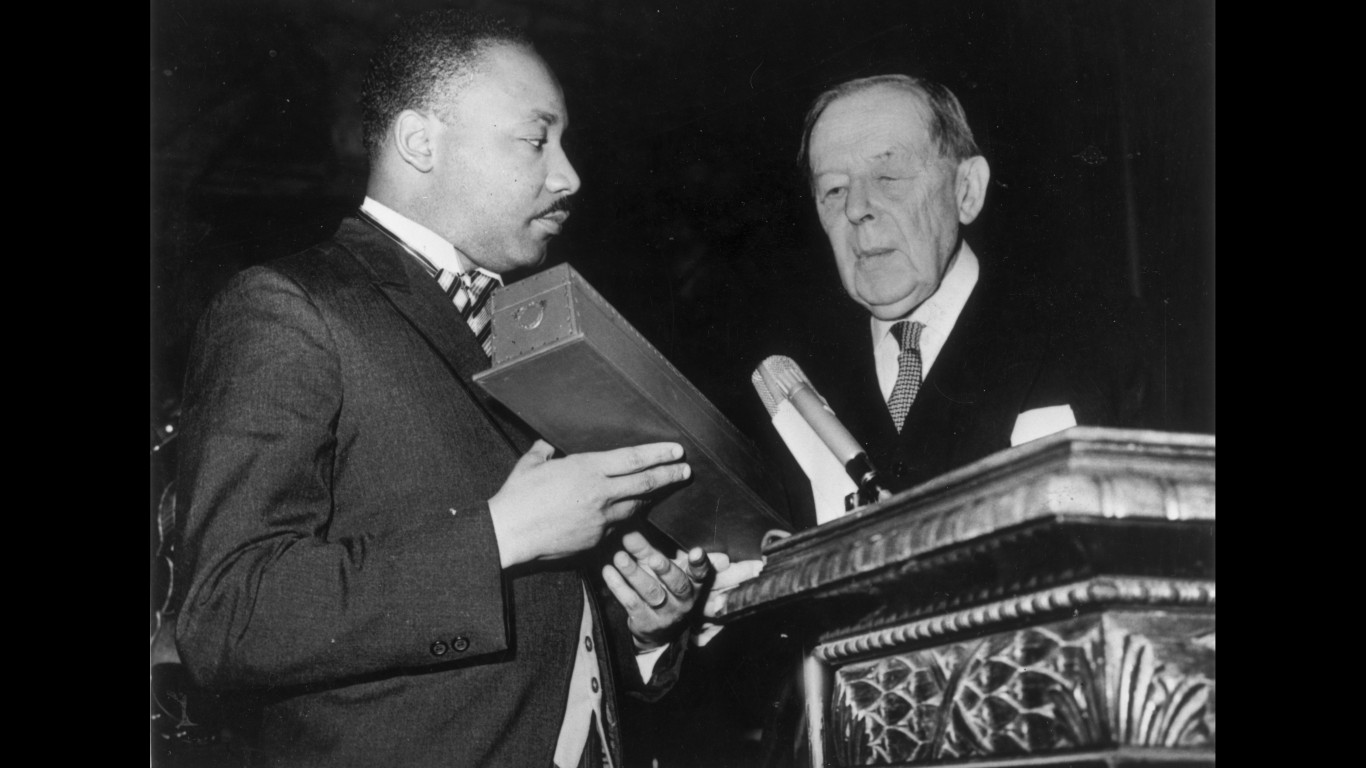
King was youngest to win the prize
Martin Luther King Jr. won the Nobel Peace Prize in 1964 for his nonviolent approach to combating racism in the United States. Then 35 years old, King was the youngest person to win the award. The youngest award recipient today is Malala Yousafzai from Pakistan, who won the award in 2014 at age 17.
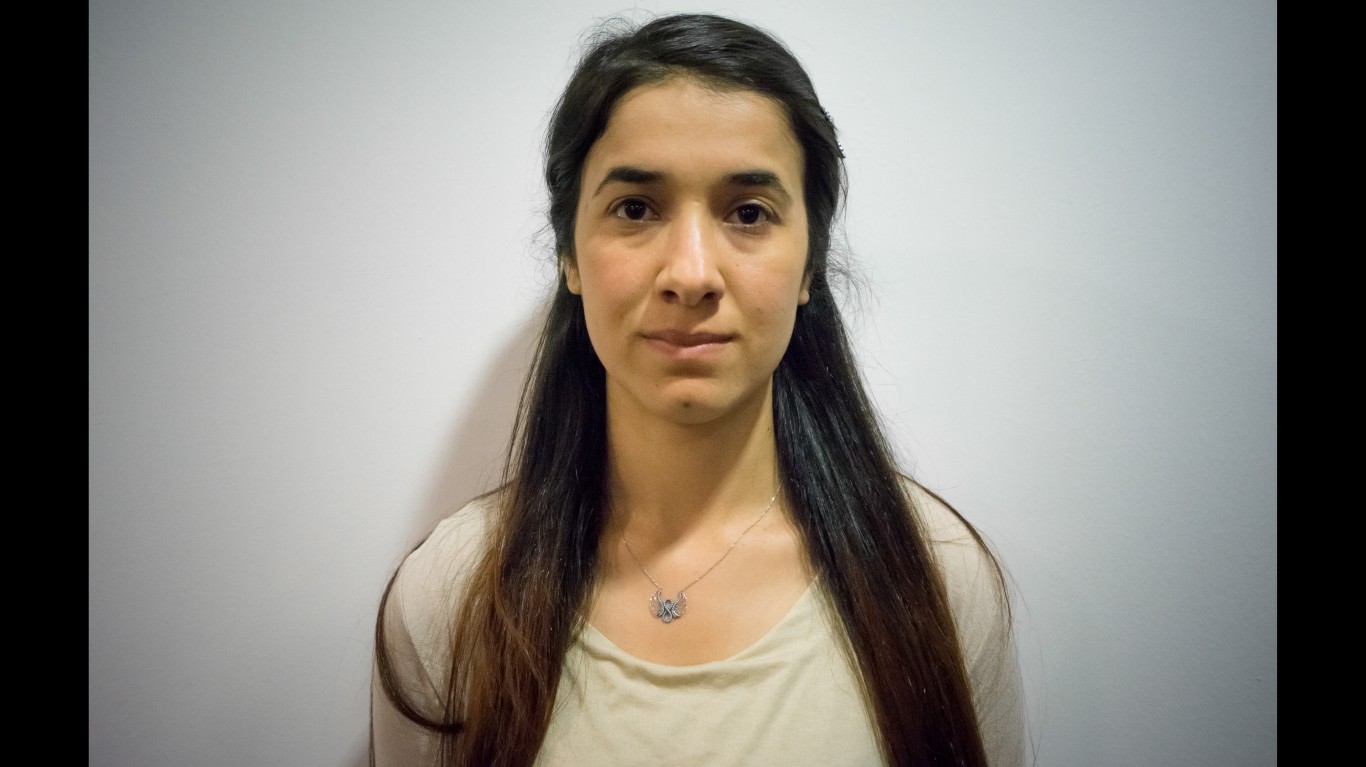
Women recognized
Seventeen Nobel Peace Prize winners have been women, and since 1990, nine have been awarded Nobel Peace Prizes. The most recent female laureate was Nadia Murad, who won the prize last year. Murad is a Yazidi woman who survived abduction, abuse, and rape by ISIS fighters after they attacked her village in Iraq. After escaping and fleeing to a refugee community in Germany, Murad began working to help survivors of sexual violence and human trafficking.
[in-text-ad-2]
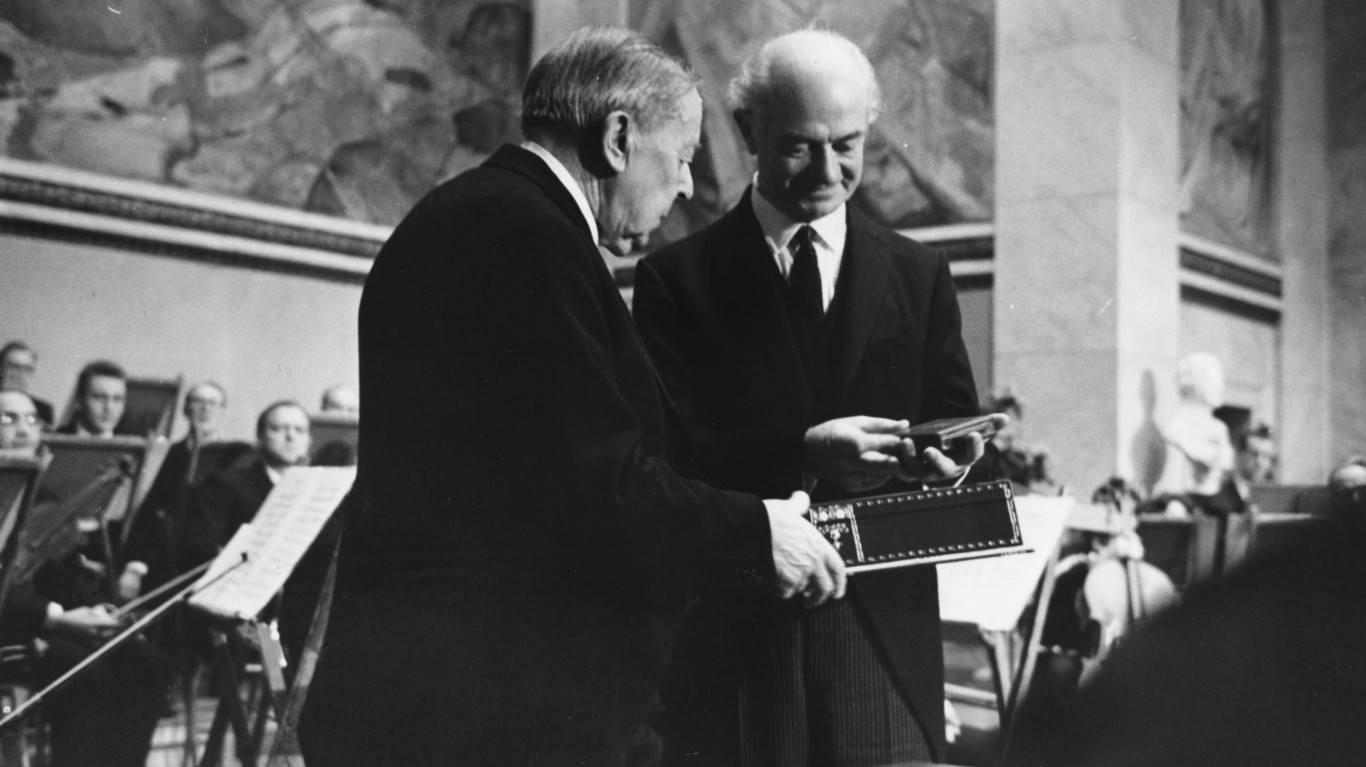
Pauling’s second Nobel
Linus Pauling, who won the Nobel Prize for Chemistry in 1954, also won the Nobel Peace Prize in 1962. Pauling was appalled by the devastating results of atomic weapons on Hiroshima and Nagasaki during World War II and became active in the movement to convince the nuclear powers to sign on a nuclear test ban treaty.
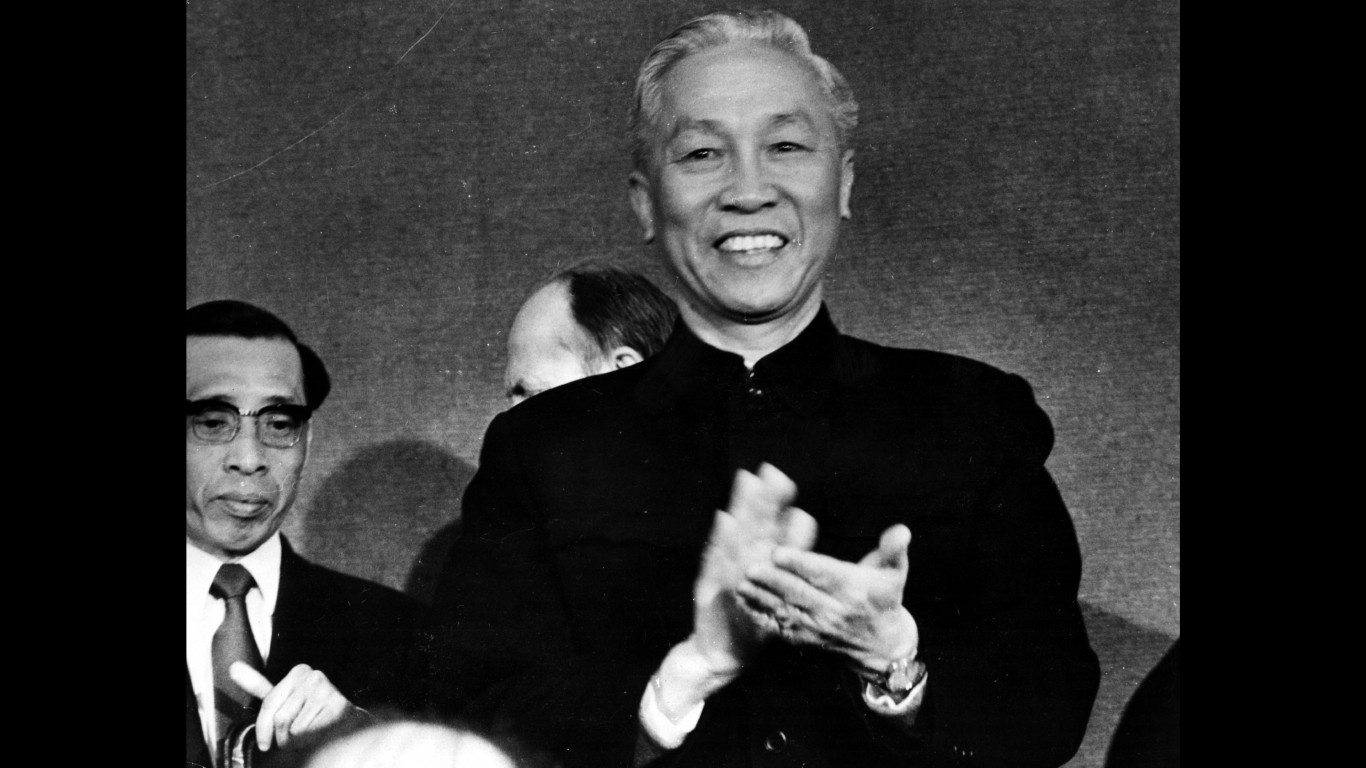
Award rejected
Le Duc Tho shared the prize jointly with U.S. Secretary of State Henry Kissinger in 1973 for negotiating the Vietnam peace agreement. The representative from North Vietnam, however, turned down the award, citing the ongoing conflict in Vietnam. Tho is so far the only person to decline the award.
[in-text-ad]
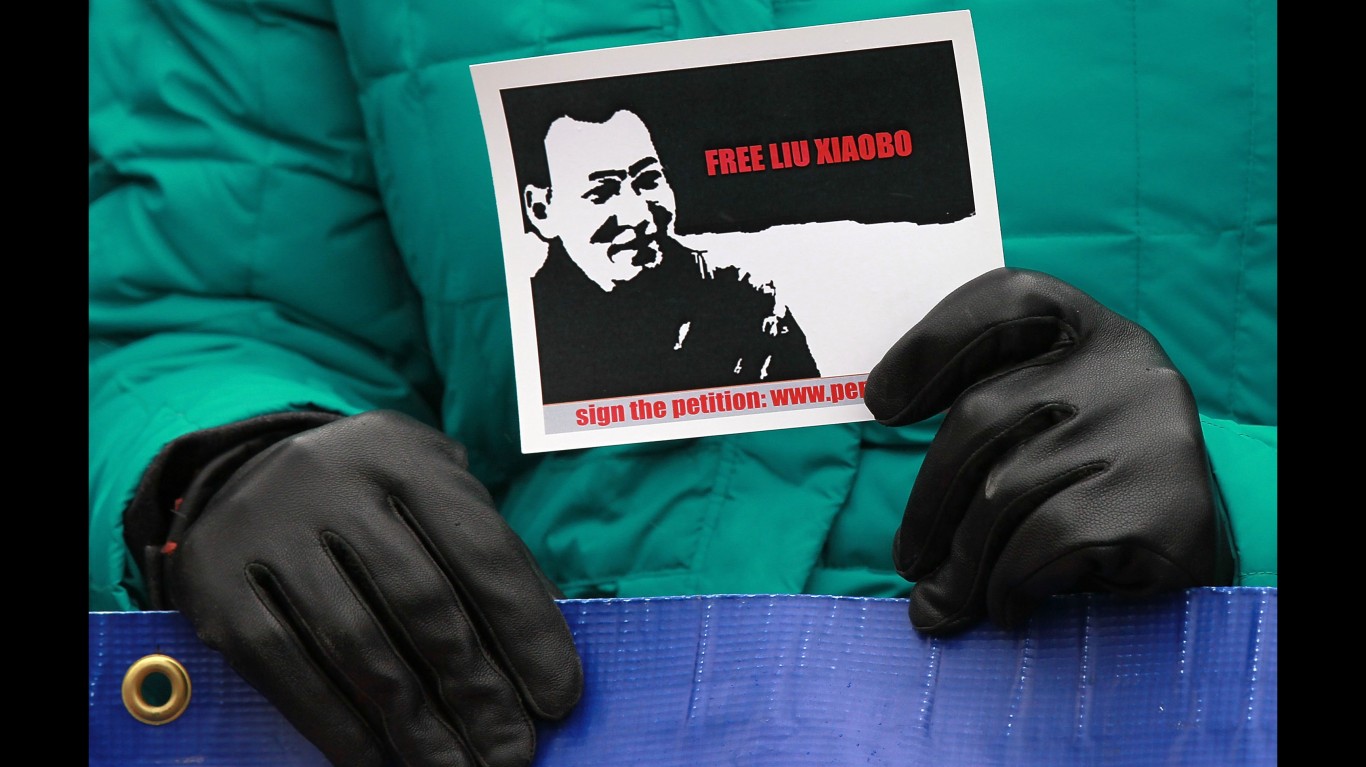
Laureates under arrest
Three Nobel Peace Prize laureates were under arrest at the time they won the award: German pacifist and journalist Carl von Ossietzky in 1935; Burmese politician and activist Aung San Suu Kyi in 1991; and Chinese human rights activist Liu Xiaobo in 2010.
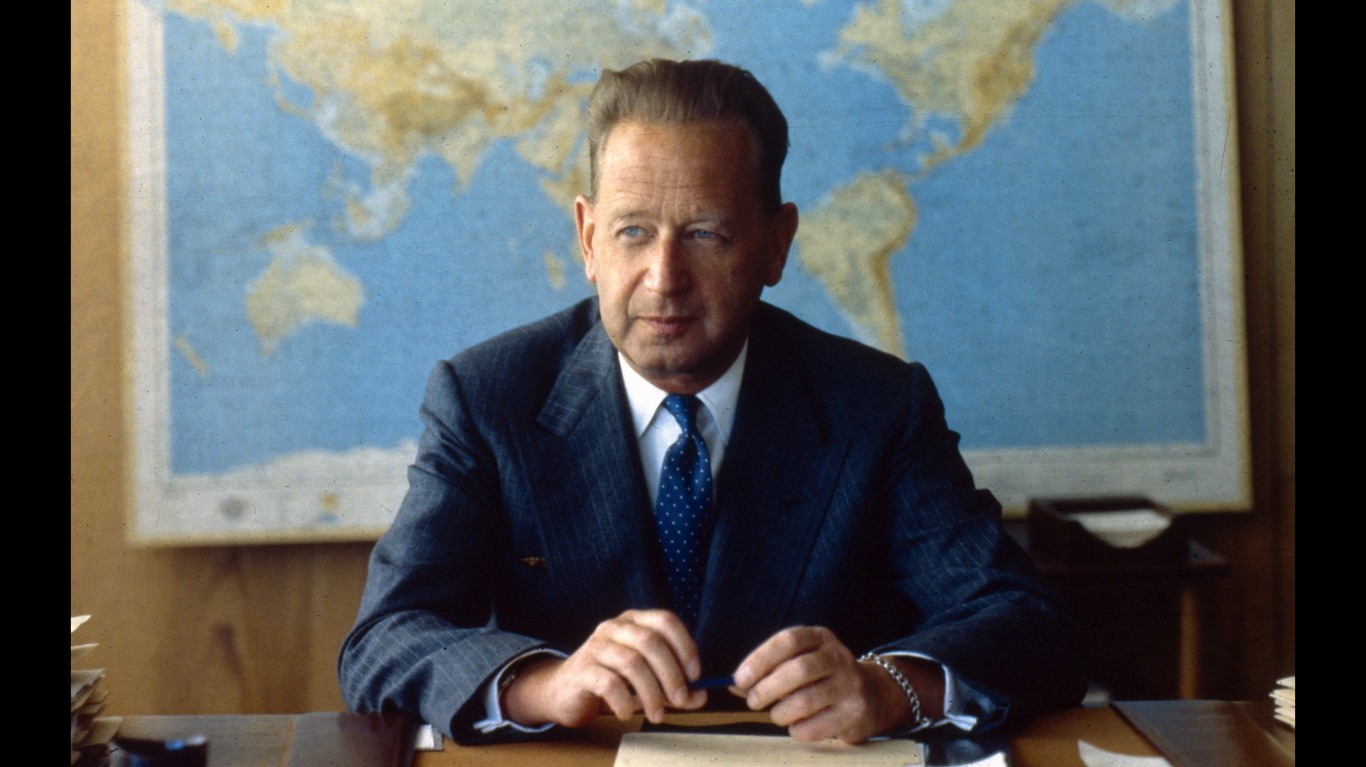
Posthumous prize
Only one posthumous Nobel Peace Prize has been awarded — to UN Secretary-General Dag Hammarskjöld in 1961, who was killed in a plane crash in Africa. Since 1974, Nobel Foundation rules have stated that a prize cannot be awarded posthumously, unless the death happened after the announcement of the prize.
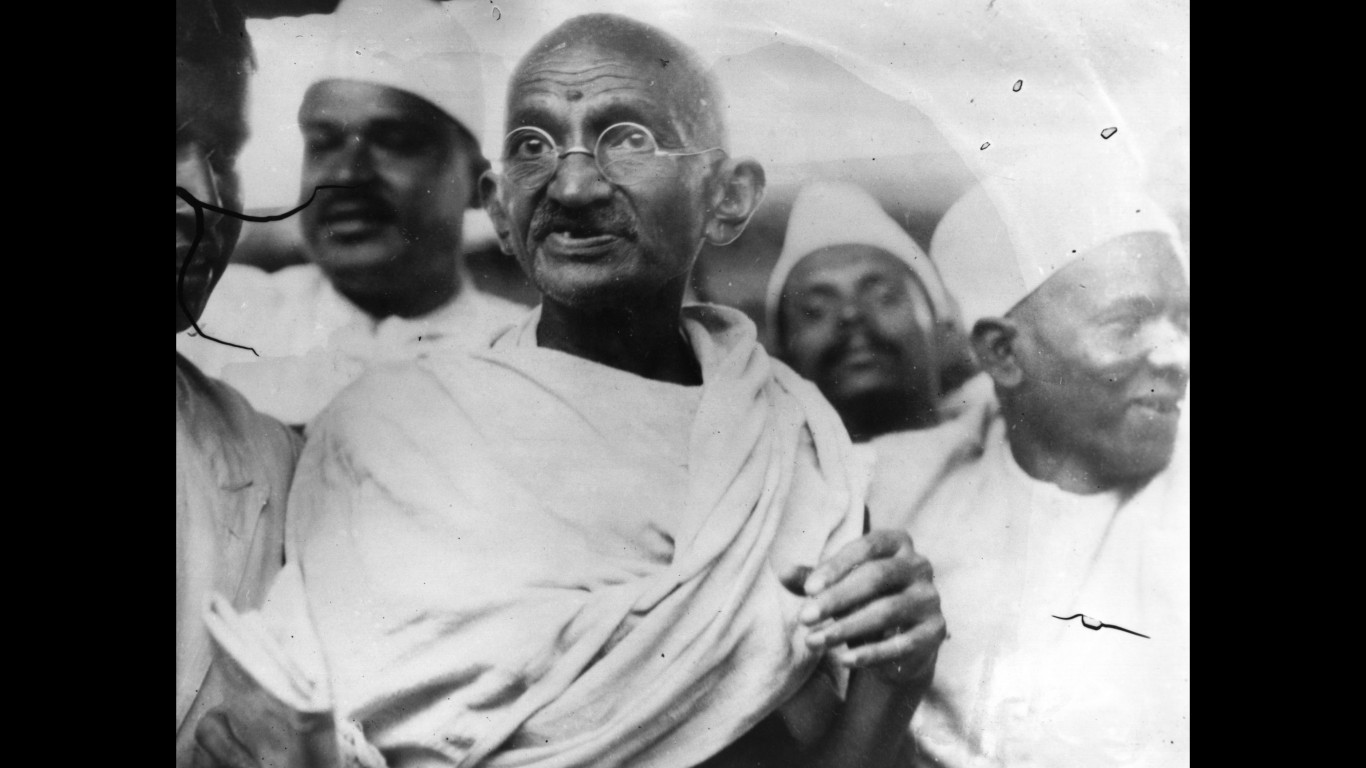
Gandhi never won
Mahatma Gandhi, one of the greatest symbols of nonviolent resistance in the 20th century, was nominated for the Nobel Peace Prize in 1937, 1938, 1939, 1947, and just before he was assassinated, in January 1948. The Nobel Committee decided to make no peace prize award that year because “there was no suitable living candidate.”
[in-text-ad-2]
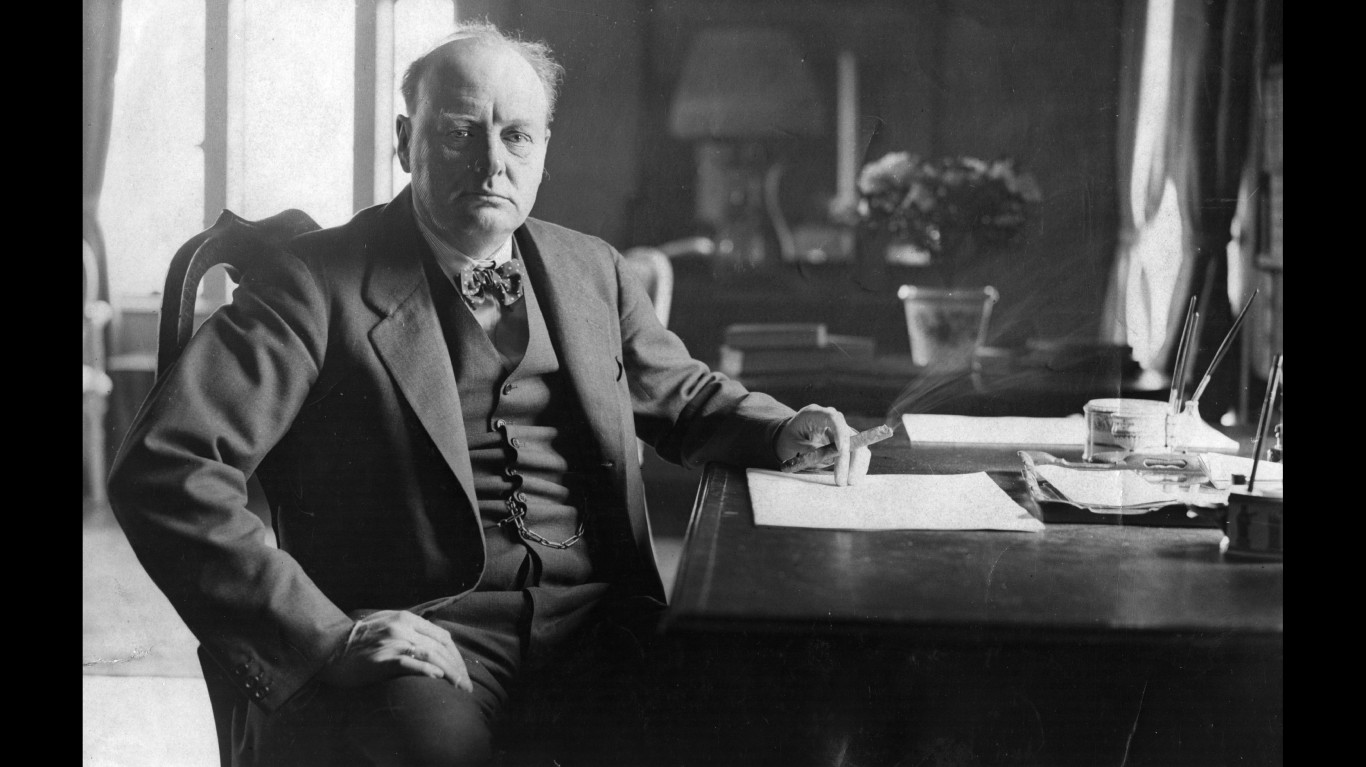
Two nominations for Churchill
Another giant of the 20th century, Winston Churchill, was nominated for the Nobel Literature Prize and the Nobel Peace Prize. Churchill won the literature award in 1953 for what the committee called “his mastery of historical and biographical description as well as for brilliant oratory in defending exalted human values.” However, he did not win the peace prize.
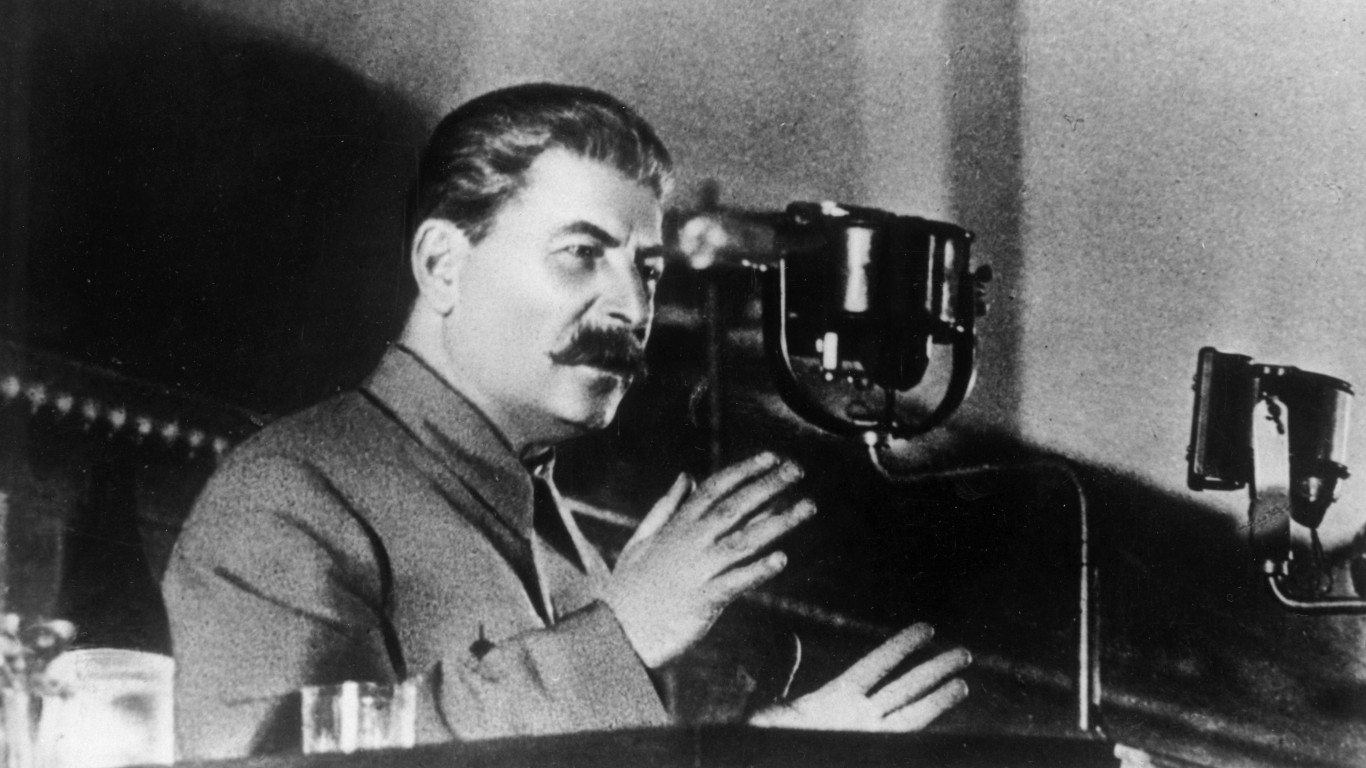
Stalin nominated
Soviet dictator Joseph Stalin, the secretary general of the Communist Party of the Soviet Union who instituted a reign of death and terror, was nominated for the Nobel Peace Prize in 1945 and 1948 for his efforts to end World War II.
[in-text-ad]
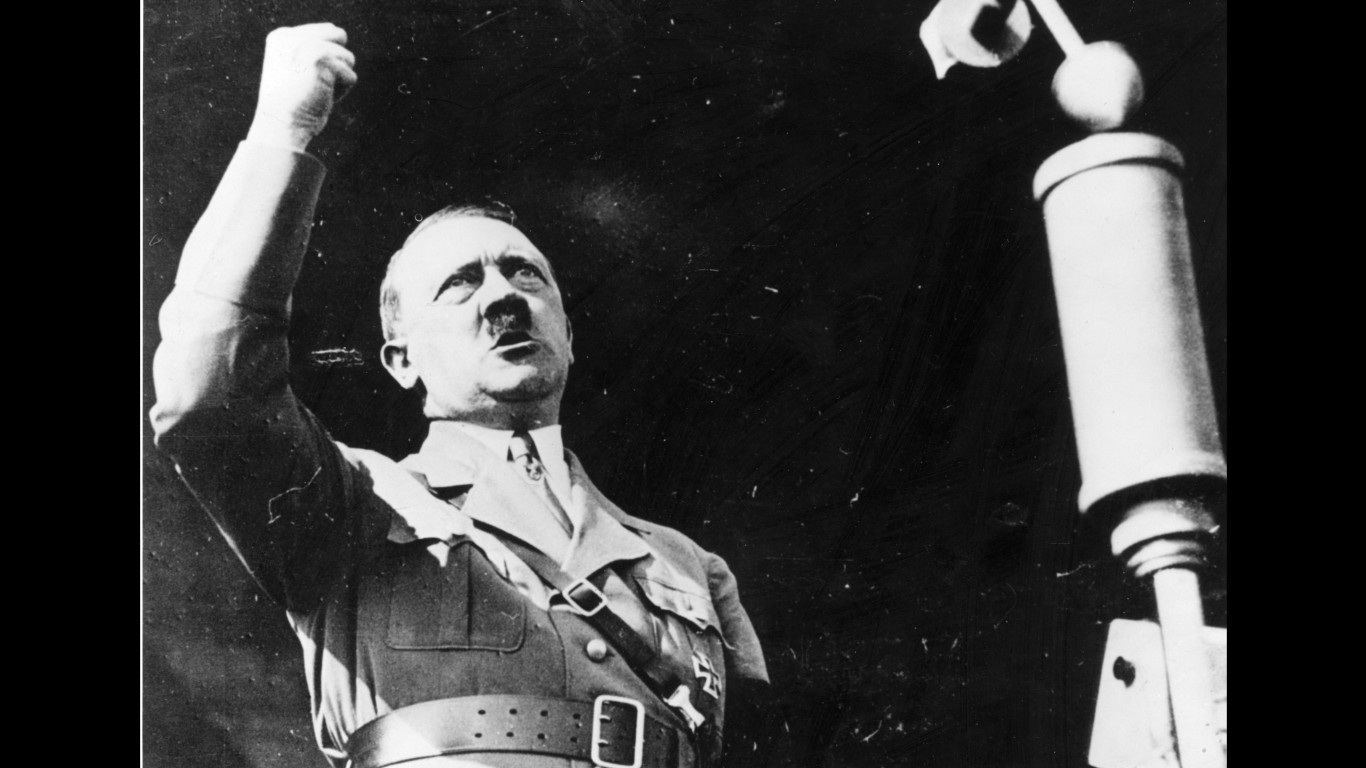
Hitler nominated — sort of
Yes, Adolf Hitler was nominated for a Nobel Peace Prize in 1939. The Nazi dictator was nominated by Swedish parliament member, E.G.C. Brandt. Apparently, Brandt, who was an antifascist, made the nomination as a satirical criticism of the way international politics were being discussed in Sweden at the time. His intentions were not well received, and the nomination was quickly withdrawn.
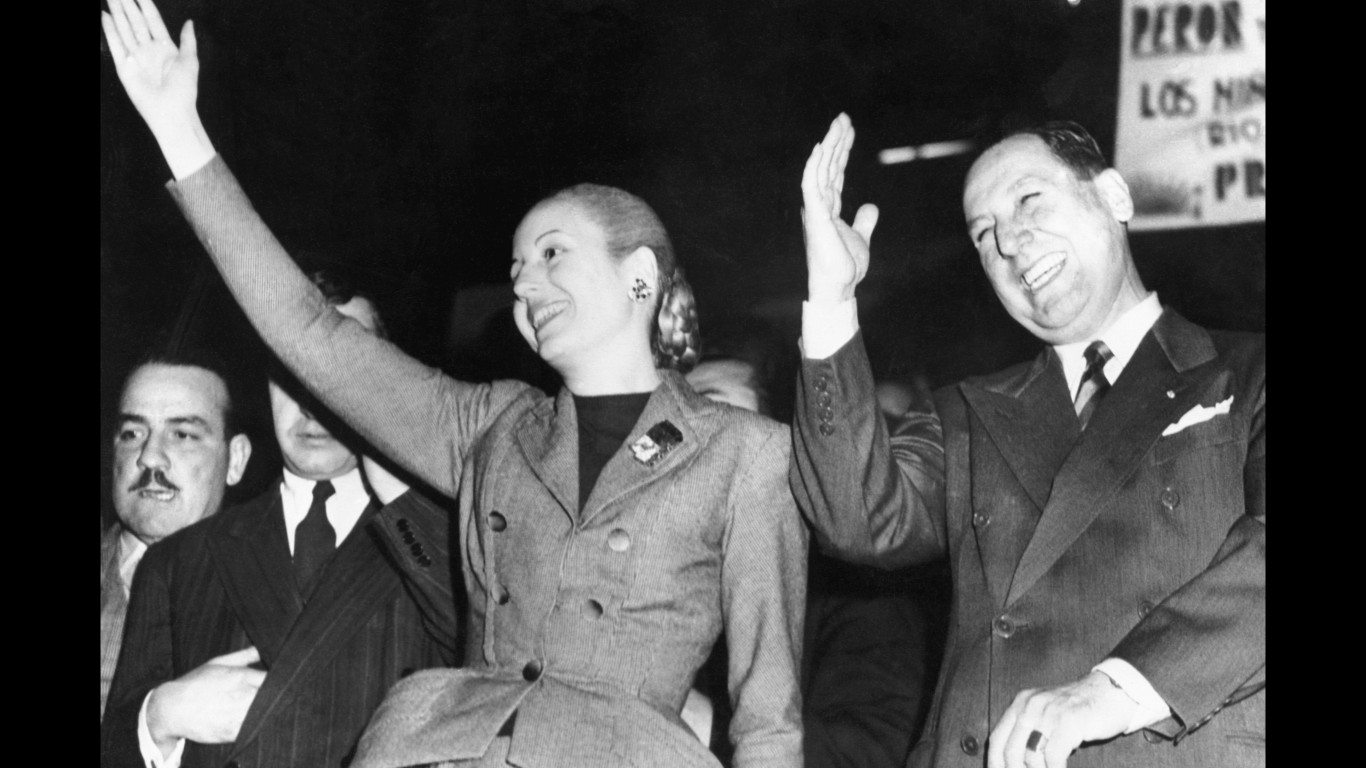
These notables were nominated
Other famous 20th-century world leaders who were nominated for the Nobel Peace Prize included Italian fascist dictator Benito Mussolini, Indian Prime Minister Jawaharlal Nehru, Argentine President and his wife Juan and Eva Peron, and British Prime Minister Neville Chamberlain.
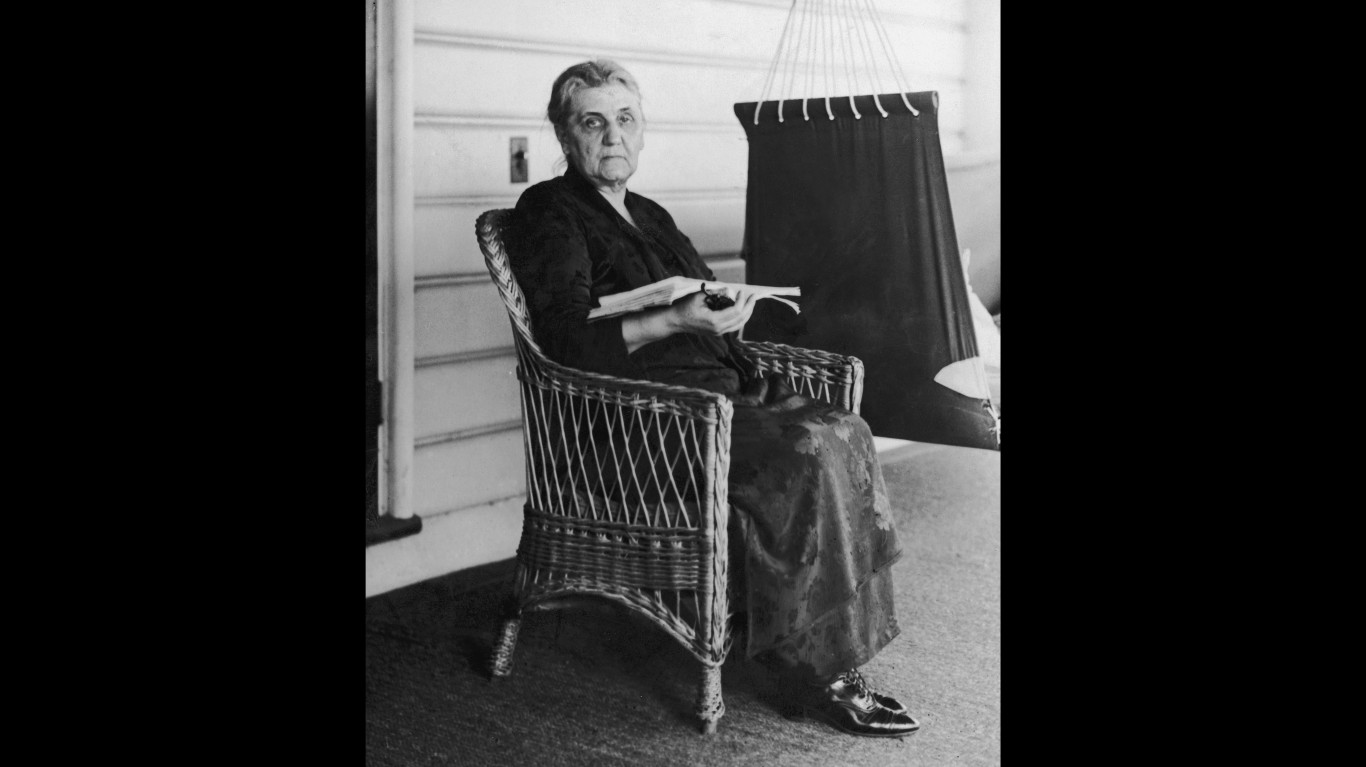
If at first you don’t succeed…
American social activist Jane Addams, who helped found the Women’s International League for Peace and Freedom, was nominated 91 times for the Nobel Peace Prize before she won in 1931, sharing the prize with philosopher and educator Nicholas Murray Butler.
[in-text-ad-2]
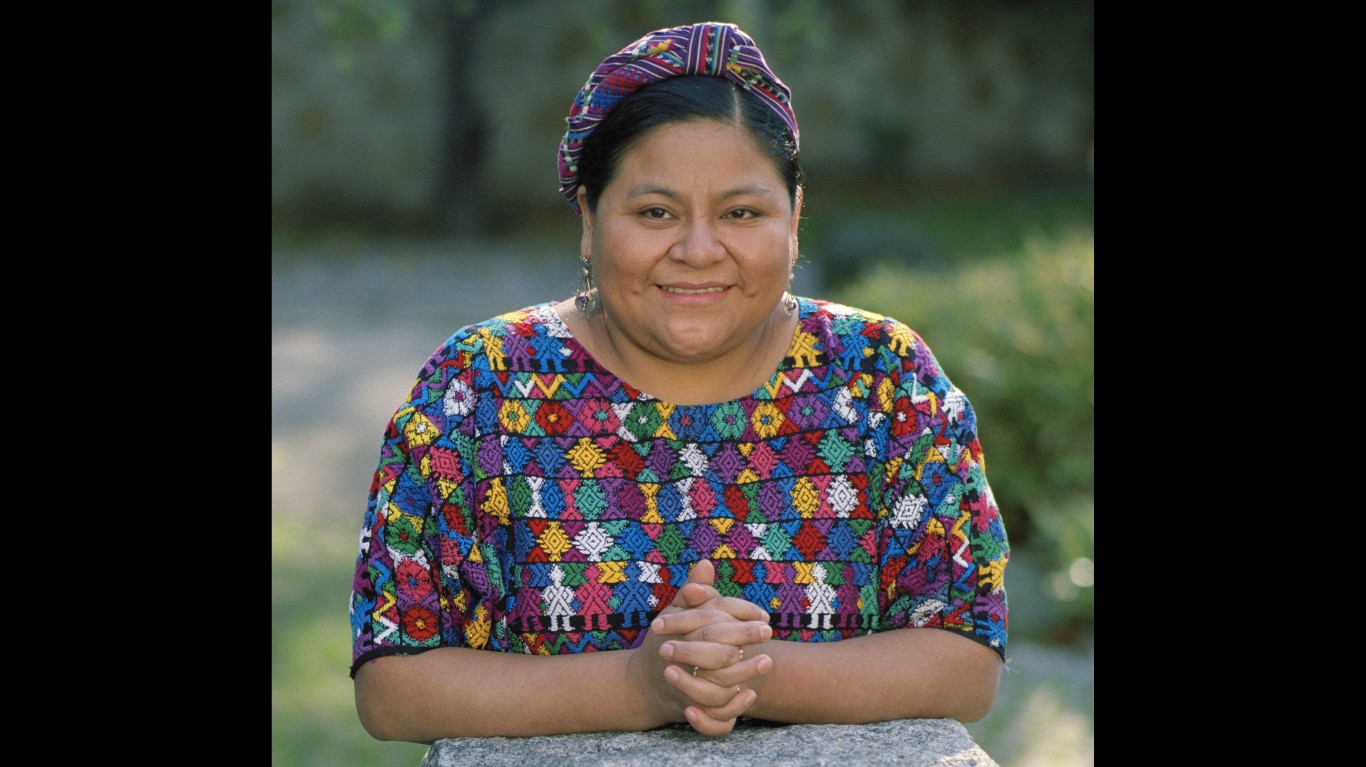
Push for diversity
Until 1960, the peace prize was awarded almost exclusively to white men from Europe and America. But that year, black South African human rights activist John Lutuli won the award, and since then the prize has been awarded to people from all over the globe. Since 1980, a total of 26 Nobel Peace Prize laureates have been from countries outside Europe and North America.
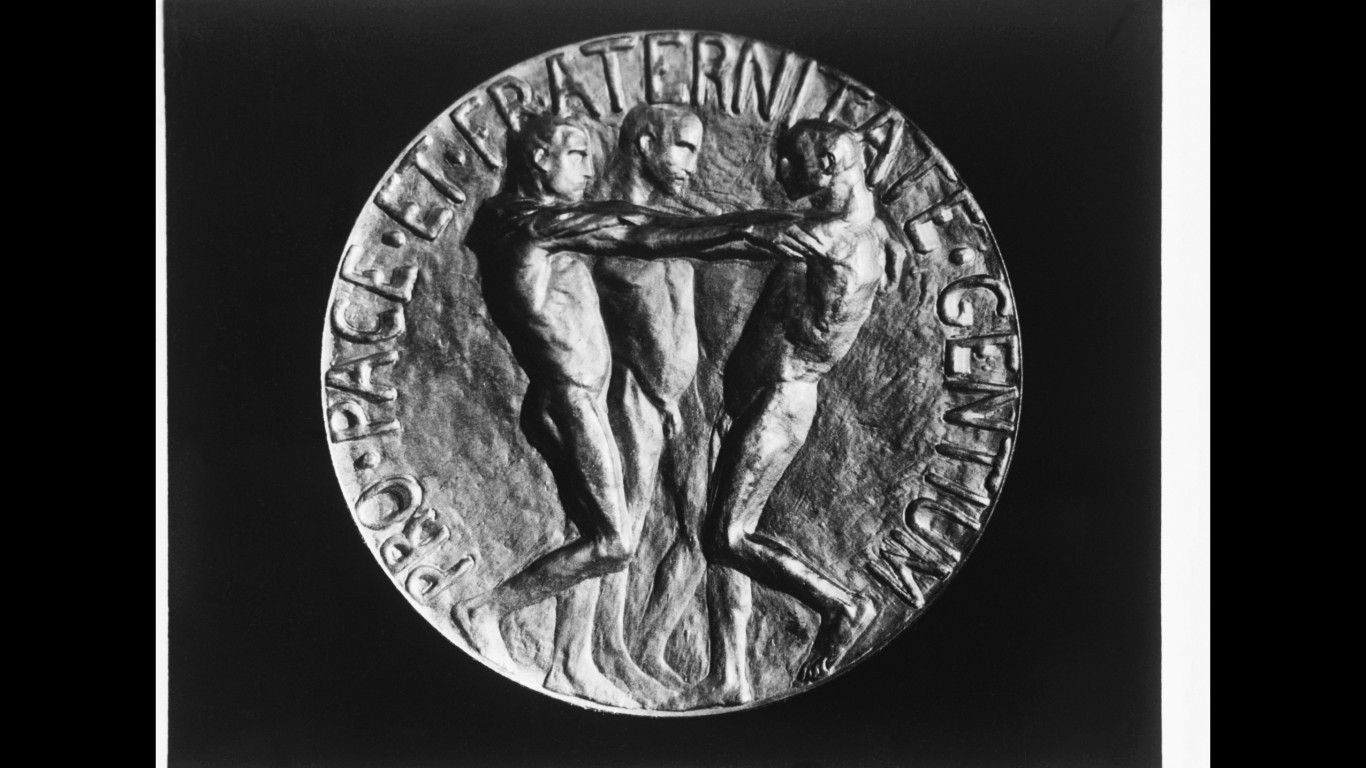
For brotherhood
The inscription on the Nobel Peace Prize medal reads “Pro pace et fraternitate gentium,” which translates to “For the Peace and Brotherhood of Men.”
[in-text-ad]
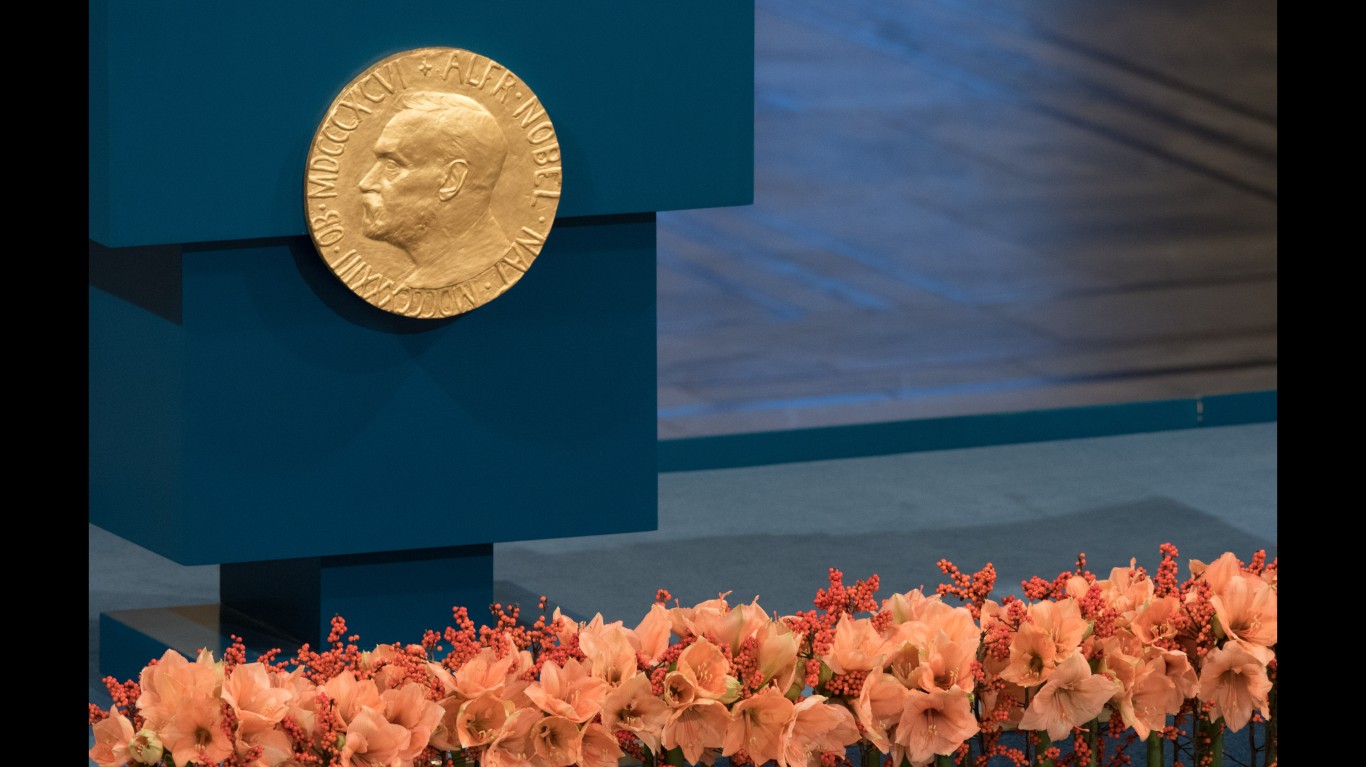
All people eligible
In his will, Nobel addressed the political concerns surrounding the peace prize by stating, “It is my express wish that when awarding the prizes, no consideration be given to nationality, but that the prize be awarded to the worthiest person, whether or not they are Scandinavian.”
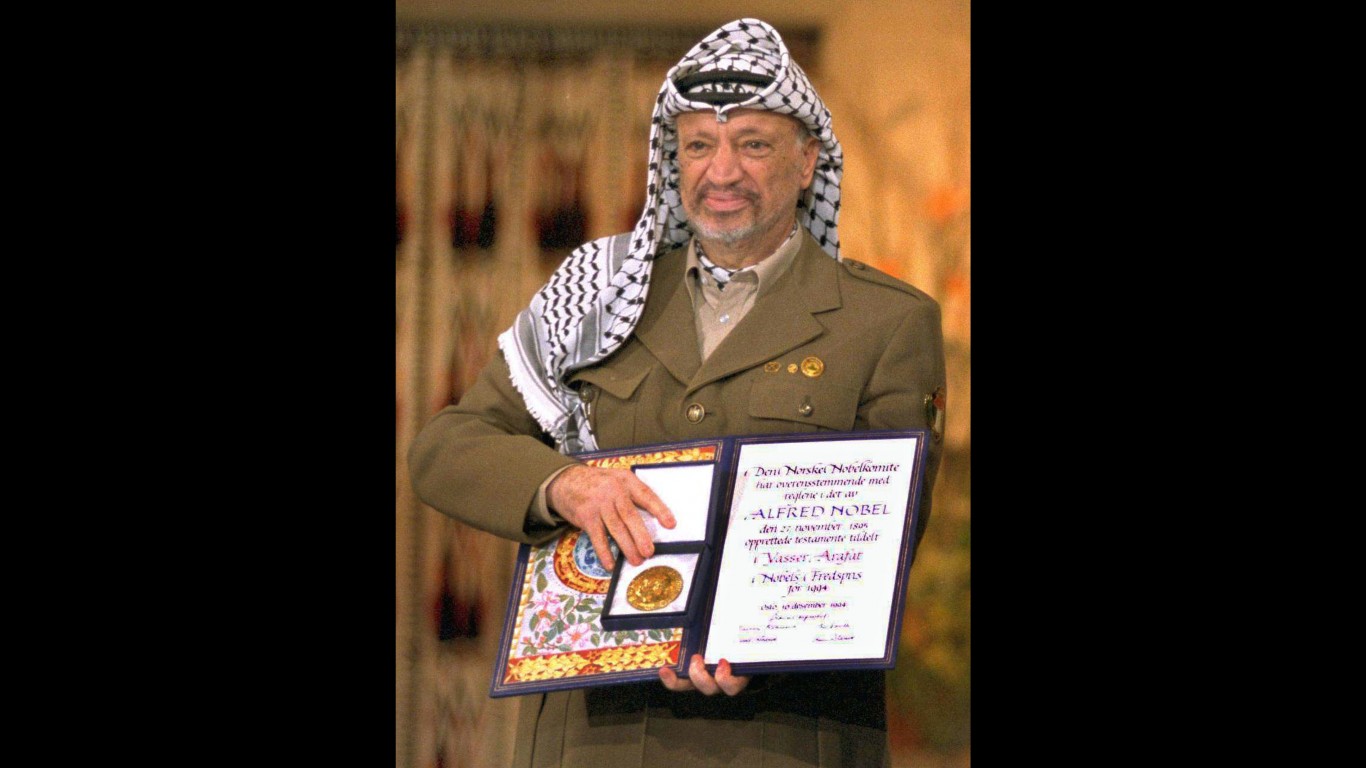
Protest over Arafat
Nobel Committee member Kåre Kristiansen was outraged when Yasser Arafat, Chairman of the Palestine Liberation Organization, won the peace prize in 1994 (sharing it with Shimon Peres and Yitzhak Rabin) and resigned, calling him a “terrorist.”
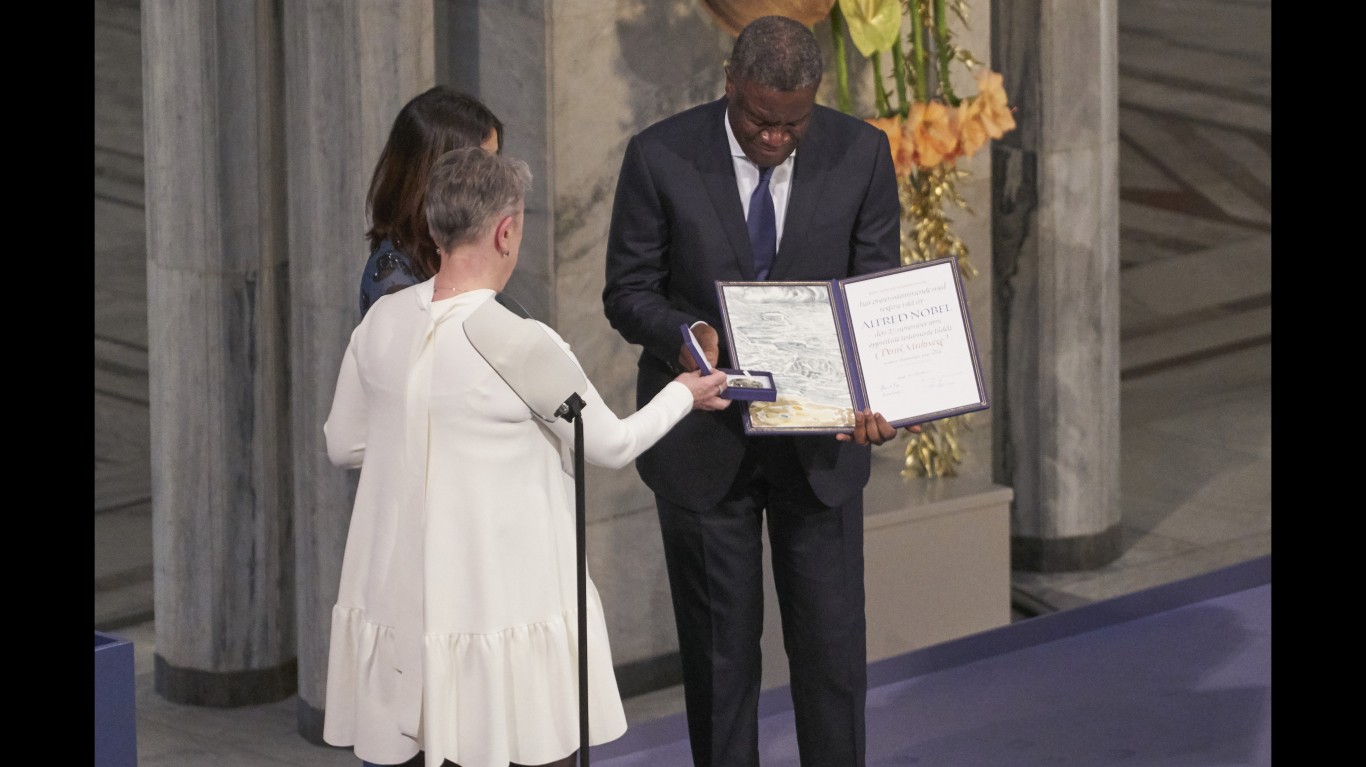
Diploma design standardized
Up until 1990, the Peace Prize diplomas were individually designed for each winner. Now, the Norwegian Nobel Committee is responsible for the design.
[in-text-ad-2]

Names kept secret
Neither the names of the nominators nor those of the nominees for the Nobel Peace Prize may be divulged until 50 years have elapsed.
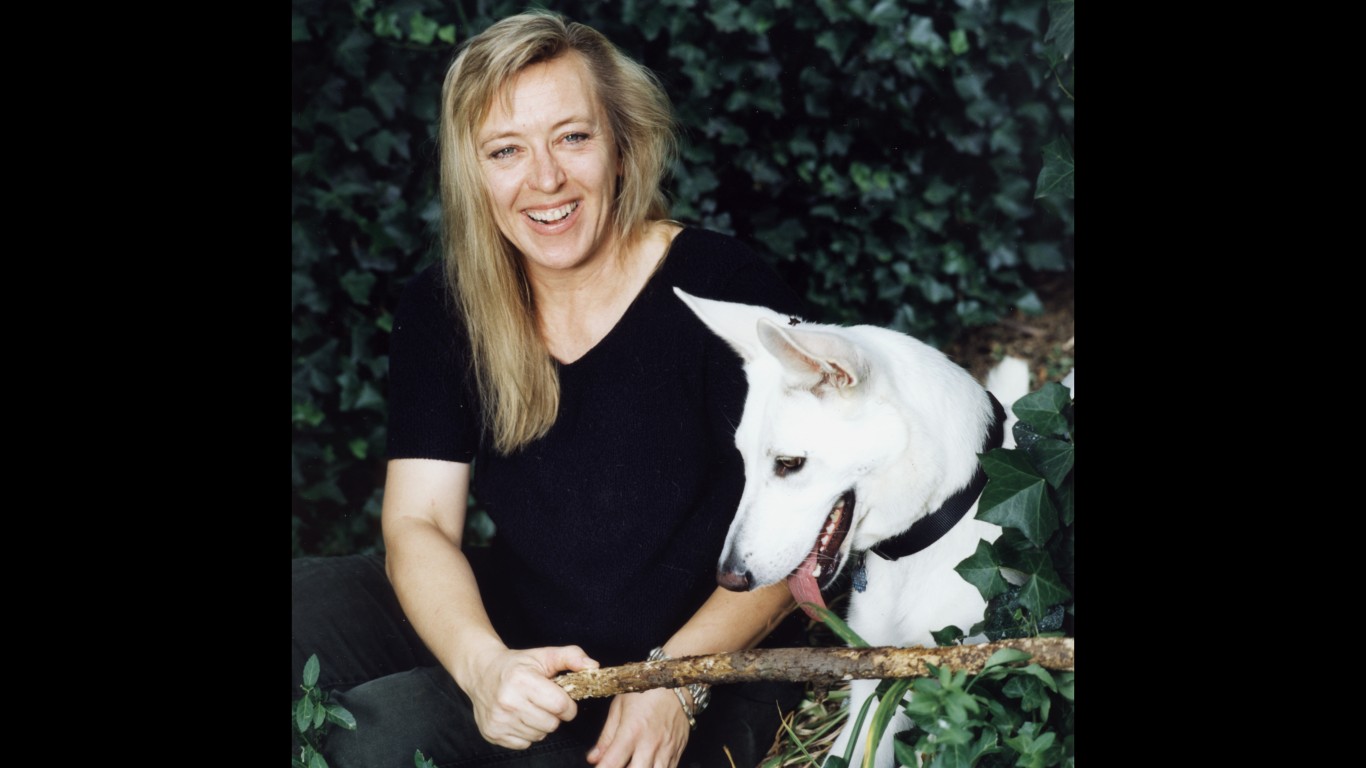
American winners
Twenty-one Americans have won the Nobel Peace Prize. The most recent American Nobel Peace Prize laureate is President Barack Obama, who won in 2009, the first year of his presidency.
[in-text-ad]
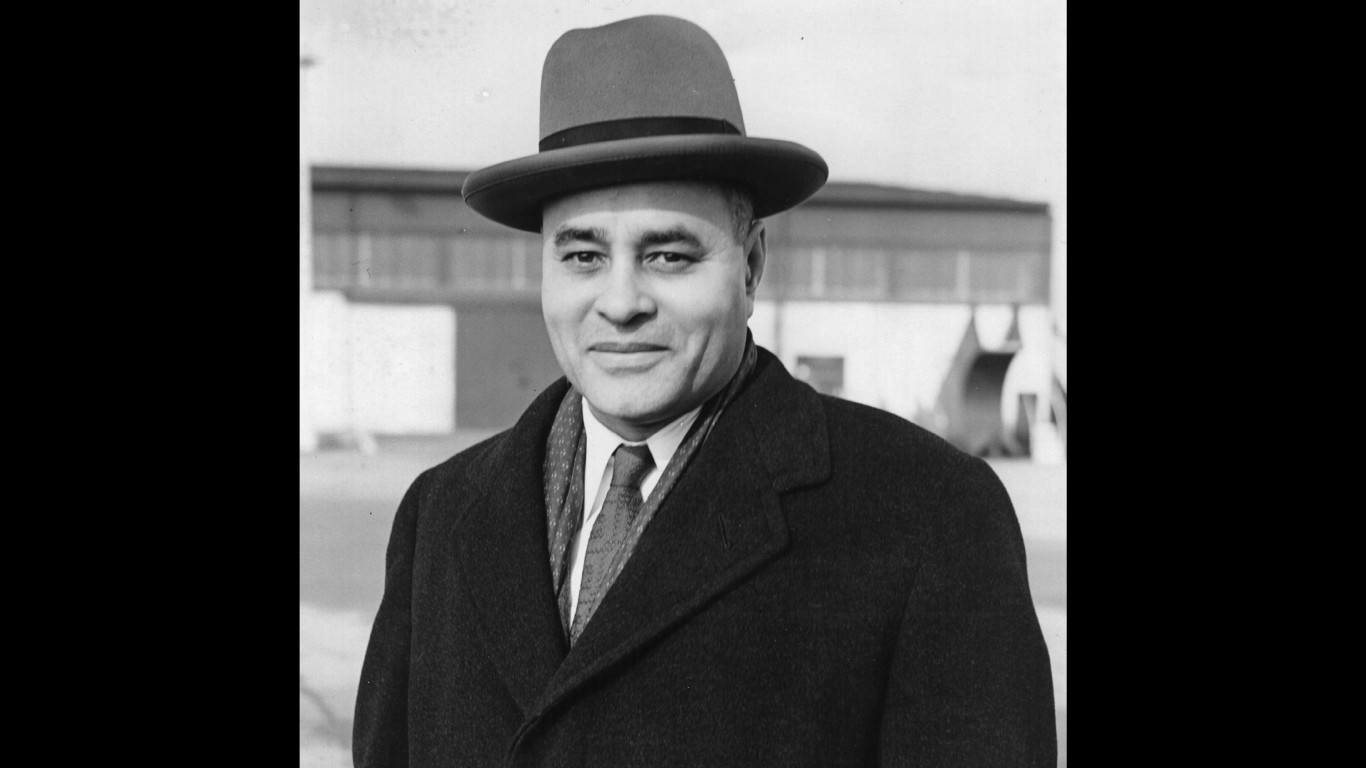
Bunche first African-American laureate
In 1950, Ralph Bunche became the first African American to win the Nobel Peace Prize for his efforts in negotiating peace in the Middle East in 1948. Bunche mediated peace between the new state of Israel and its Arab neighbors after U.N. negotiator Count Folke Bernadotte was assassinated by Jewish extremists.
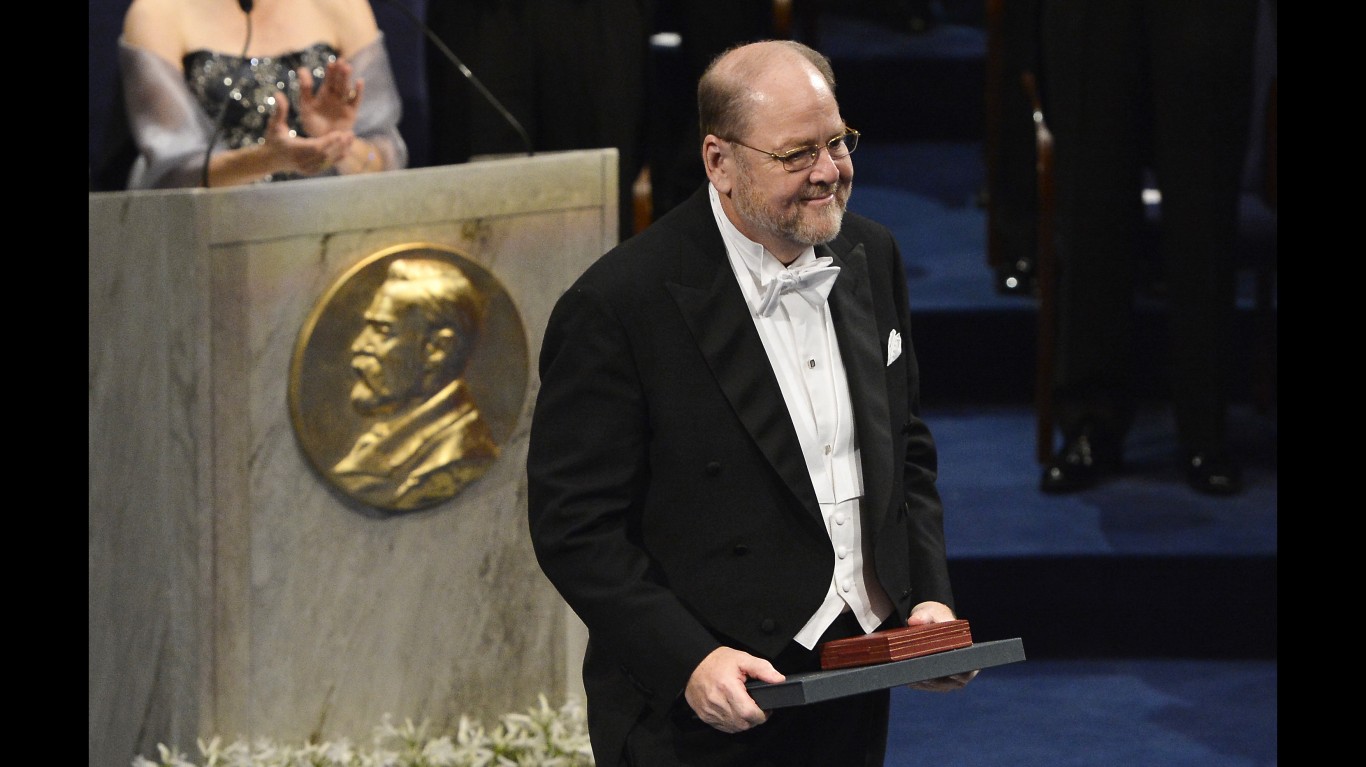
No ad-libbing the acceptance speech
Nobel Prize laureates can’t ad-lib during their acceptance speech. In a story published in Scientific American magazine, Randy Schekman, who won the 2013 Nobel Prize in Physiology or Medicine, said the text for speeches must be turned in to the Nobel Foundation more than 24 hours ahead of the awards ceremony so it can be translated into Swedish.
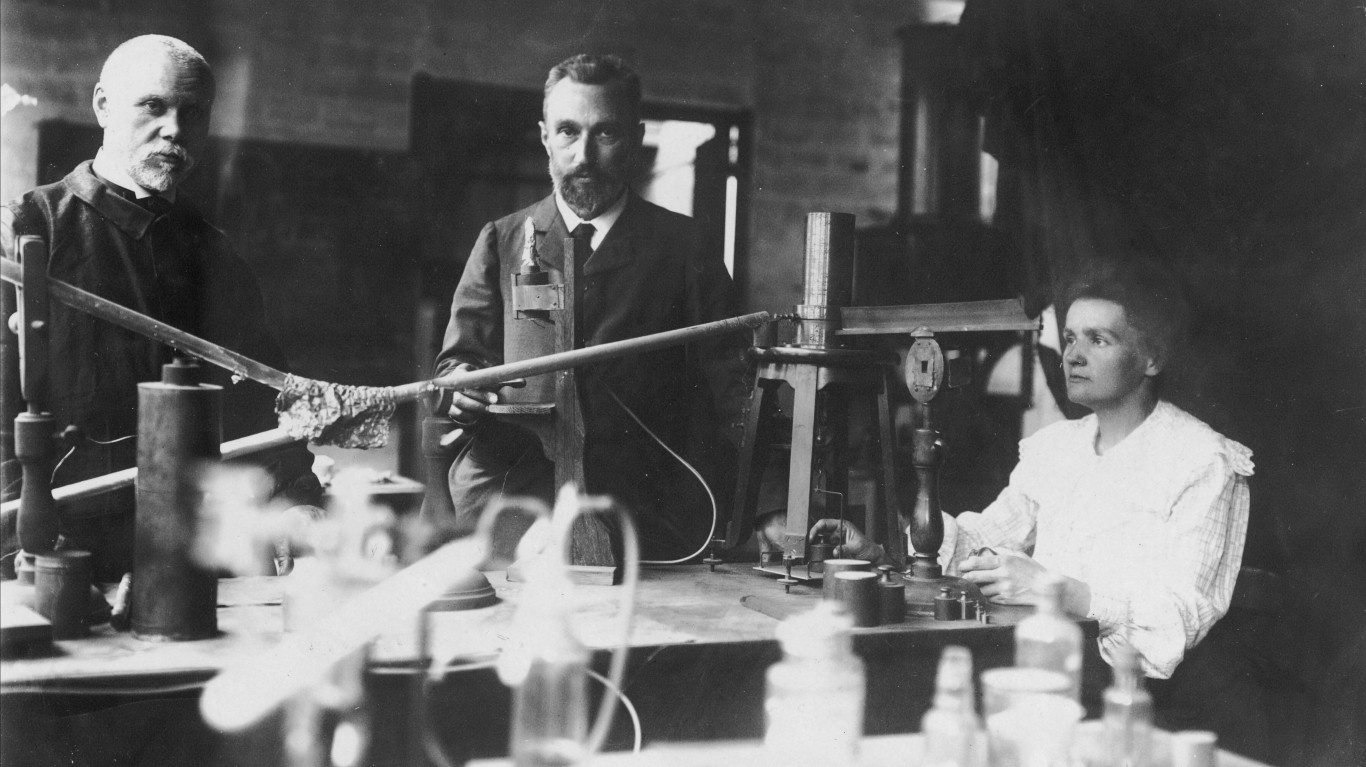
All in the family
The Curie family — Marie, husband Pierre, daughter Irène Joliot-Curie, and her husband Frédéric — all won Nobel prizes for physics and chemistry. Interestingly, Marie Curie’s son-in-law Henry Richardson Labouisse accepted the Nobel Peace Prize on behalf of UNICEF in 1965.
[in-text-ad-2]
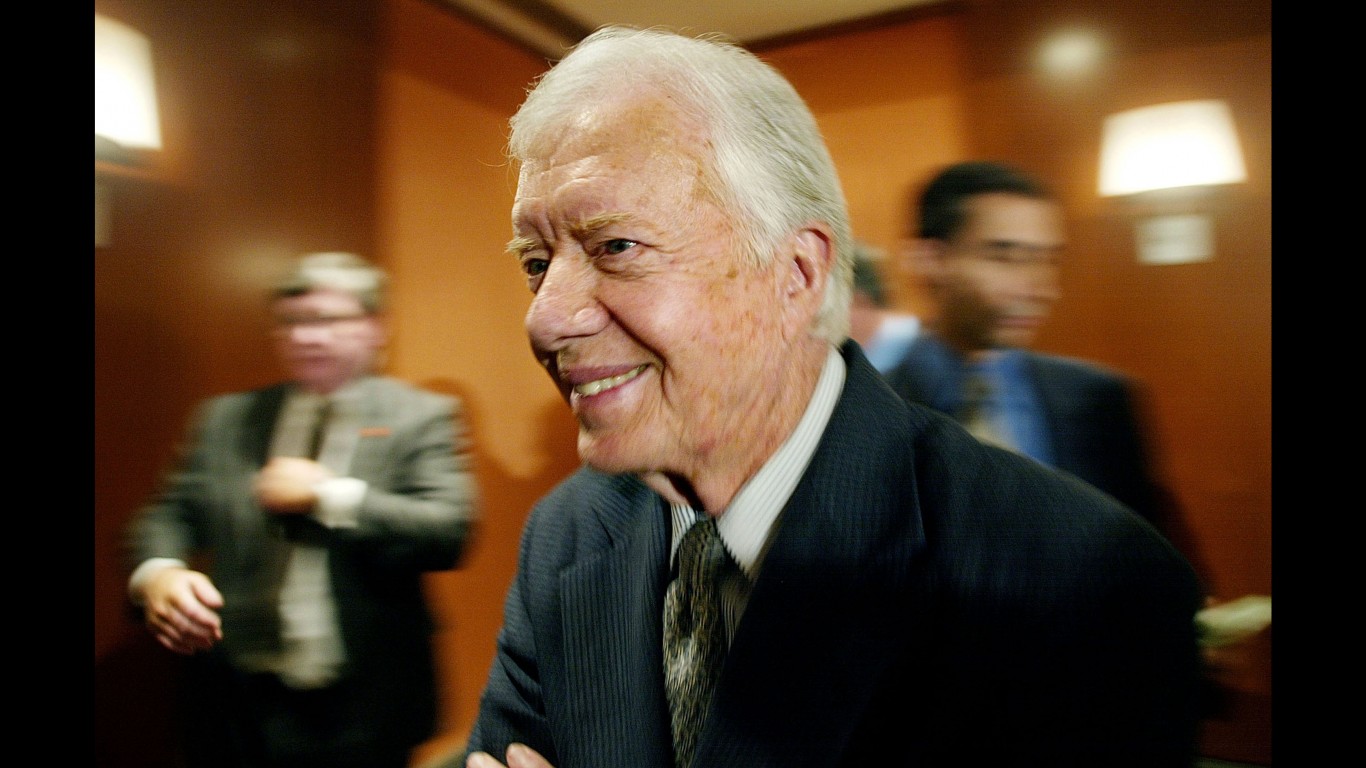
4 US presidents have won
Besides President Barack Obama, three other U.S. presidents have won the Nobel Peace Prize. Theodore Roosevelt won the award in 1906 for helping mediate the end of the Russo-Japanese War. Woodrow Wilson was honored in 1919 for his efforts to end World War I and create the League of Nations. Jimmy Carter won the award in 2002 for helping to find peaceful solutions to international conflicts, advancing democracy and human rights, and promoting economic and social development. Carter was instrumental in forging the Camp David Accords between Israel and Egypt in 1978 that led to a peace agreement between the two nations.
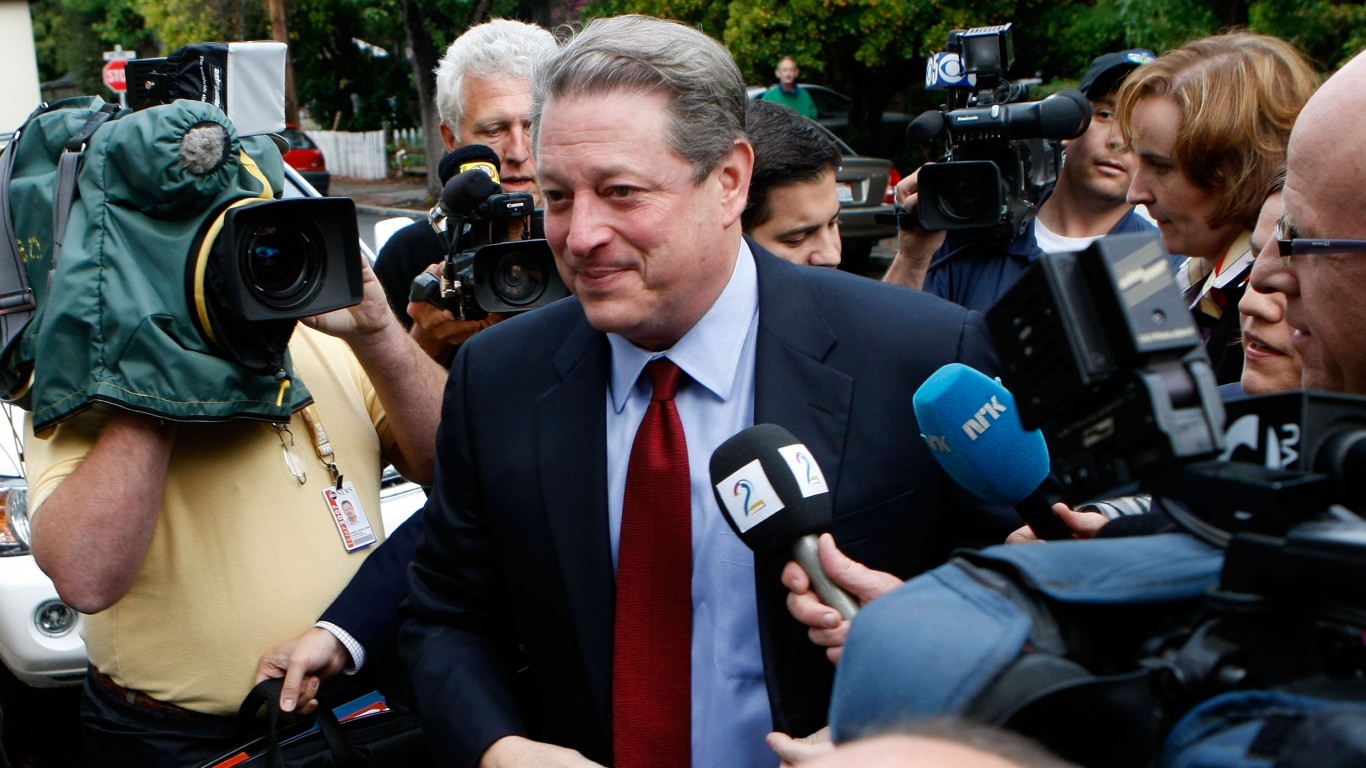
Gore won for climate change awareness
Former Vice President Al Gore and the Intergovernmental Panel on Climate Change won the award in 2007 for their work in raising awareness about climate change.
[in-text-ad]
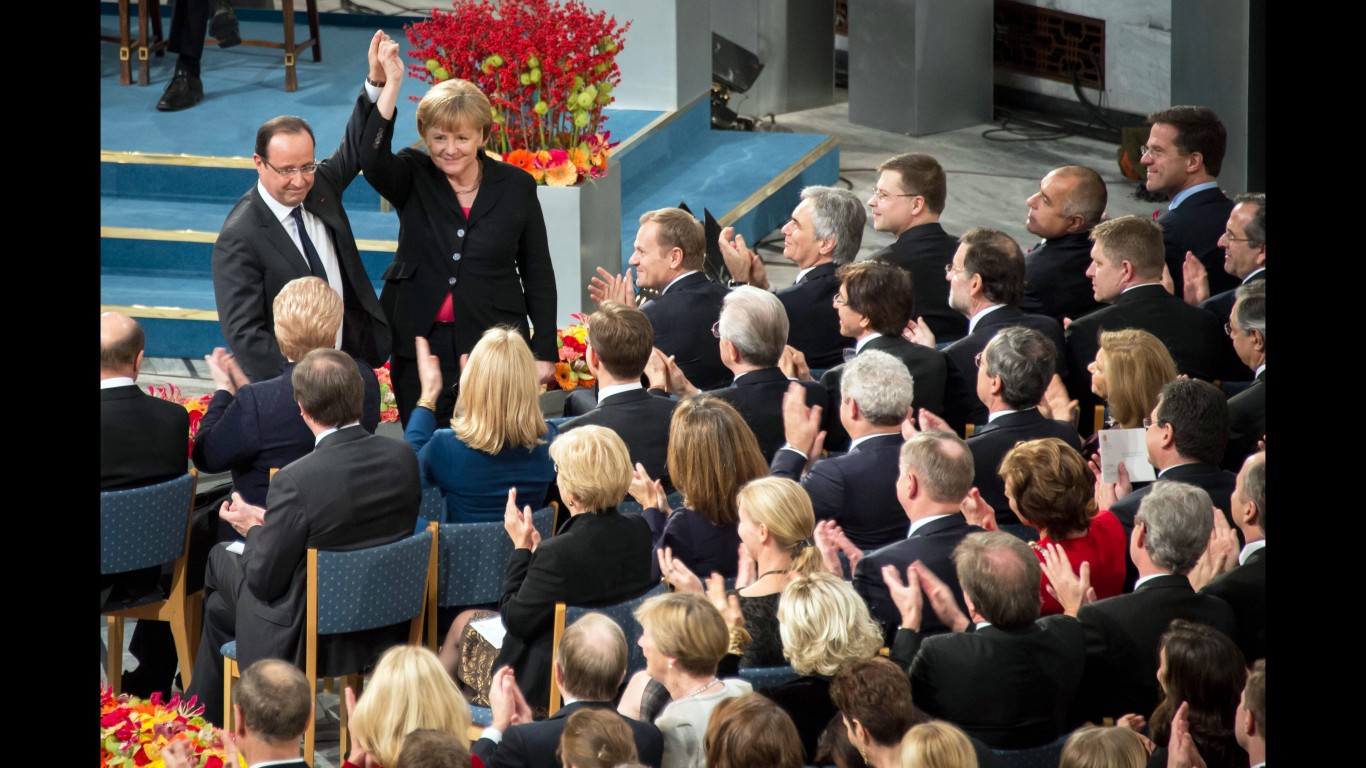
EU win criticized
The European Union won the Nobel Peace Prize in 2012 for, in the committee’s words, “over six decades contributed to the advancement of peace and reconciliation, democracy and human rights in Europe.” The award was criticized by some previous peace prize winners, including Archbishop Desmond Tutu, who said the EU does not work for peace.
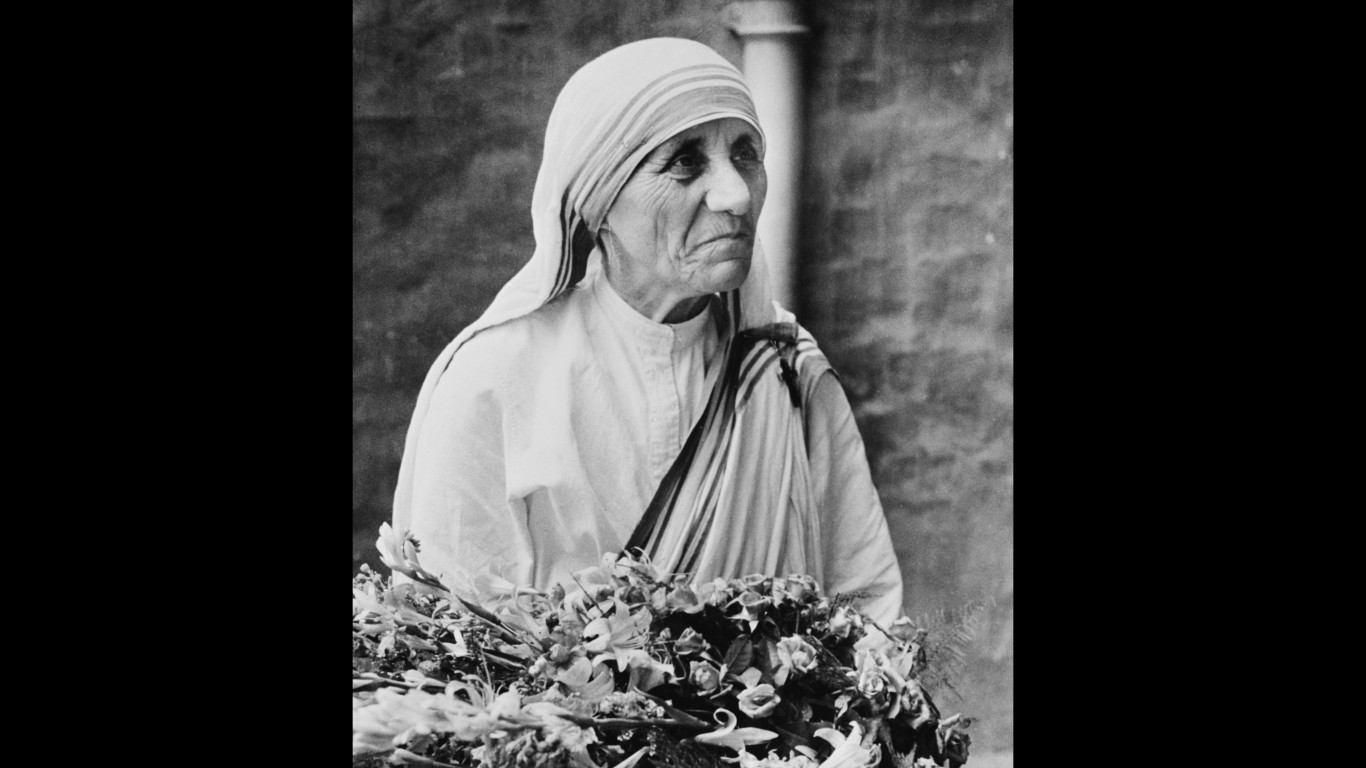
Nobel Peace Prize for a saint
Mother Teresa won the 1979 Nobel Peace Prize for her work with the poor in India, where she helped build nursing homes, hospices, and shelters for orphans in Kolkata. Pope Francis declared Mother Teresa a saint during a Mass of canonization in 2016.
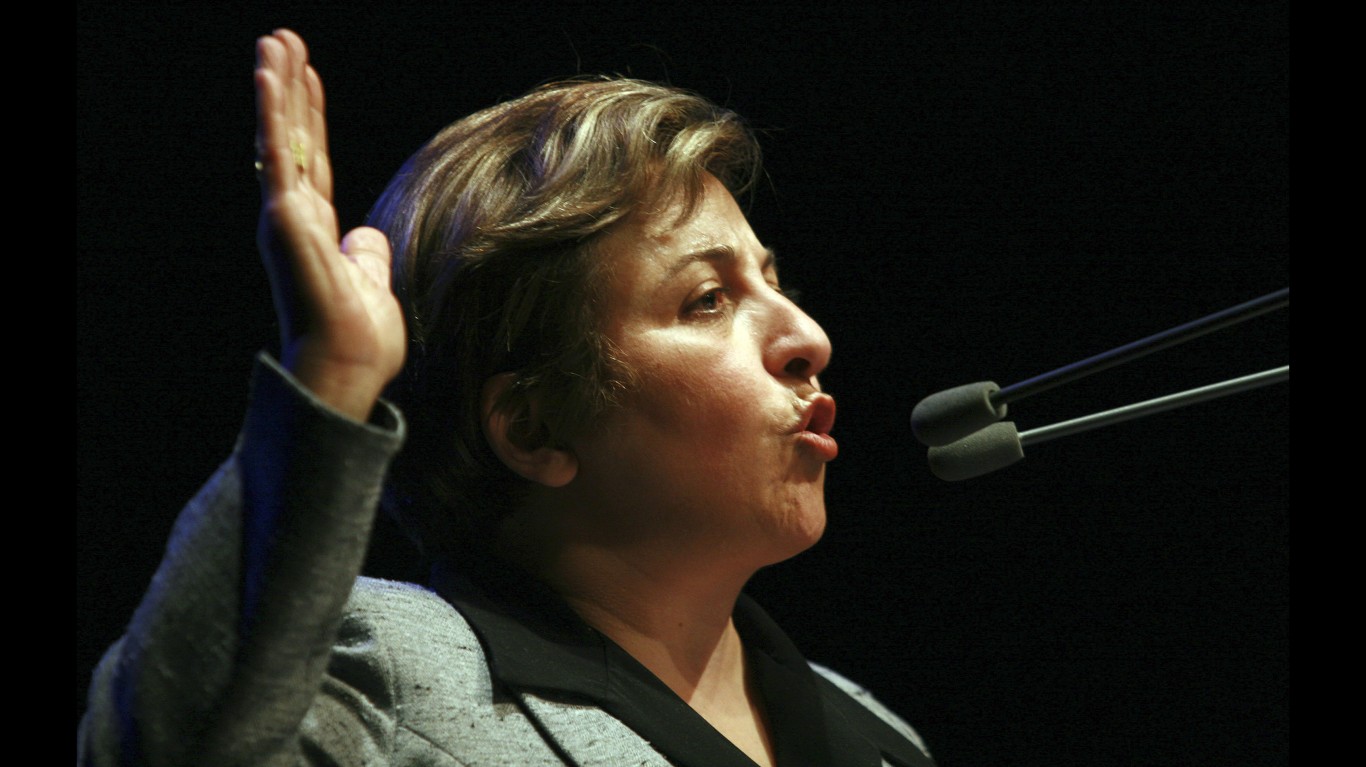
Iran’s first female judge wins
Shirin Ebadi, Iran’s first female judge, became the first Iranian and Muslim woman to win the prize in 2003. Ebad won the award for her work in defending human rights, standing up for women and children, and helping those imprisoned for political reasons.
[in-text-ad-2]
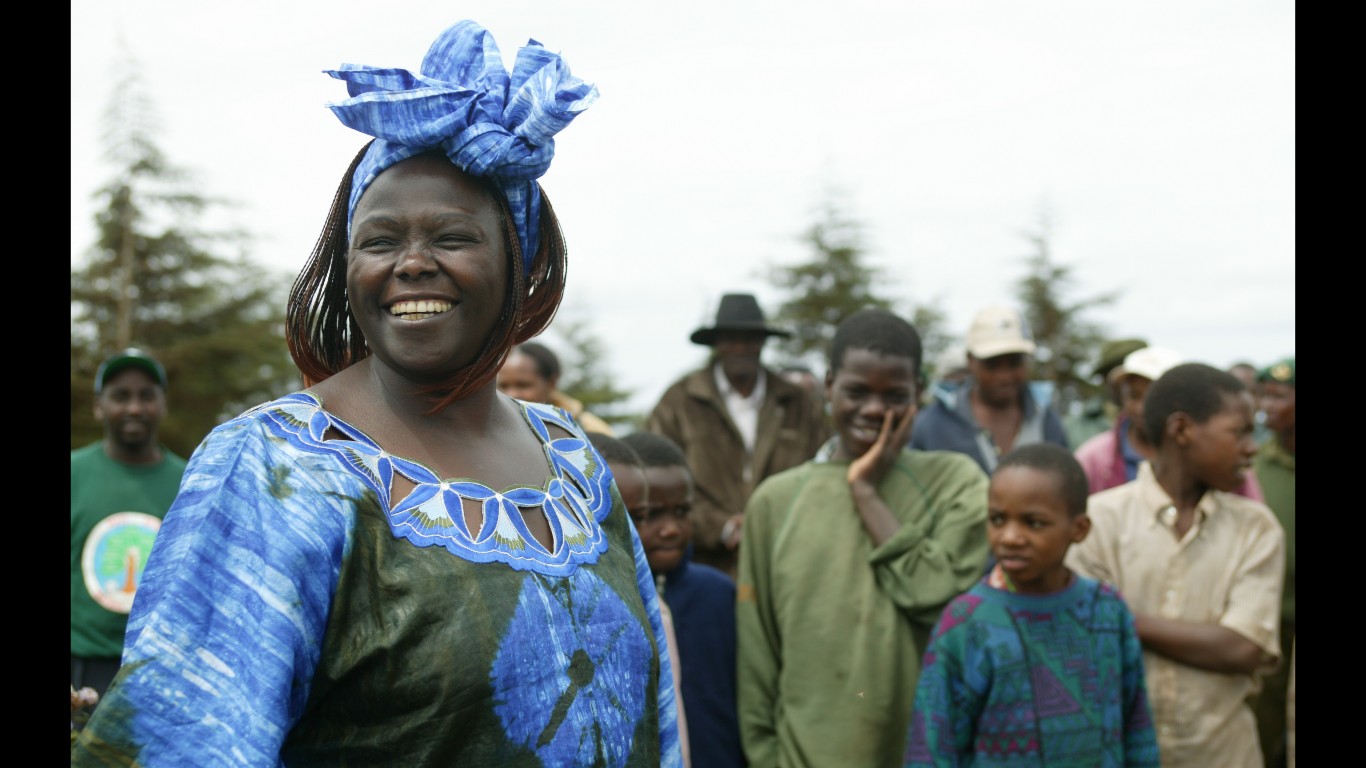
First African woman won
Wangari Maathai became the first African woman to receive the Nobel Peace Prize in 2004. The Kenyan woman is a prime mover in the Green Belt movement, which helps women plant trees at farms, schools, and churches in various African nations. Besides her environmental work, Maathai is involved in the fight for democracy and human rights.
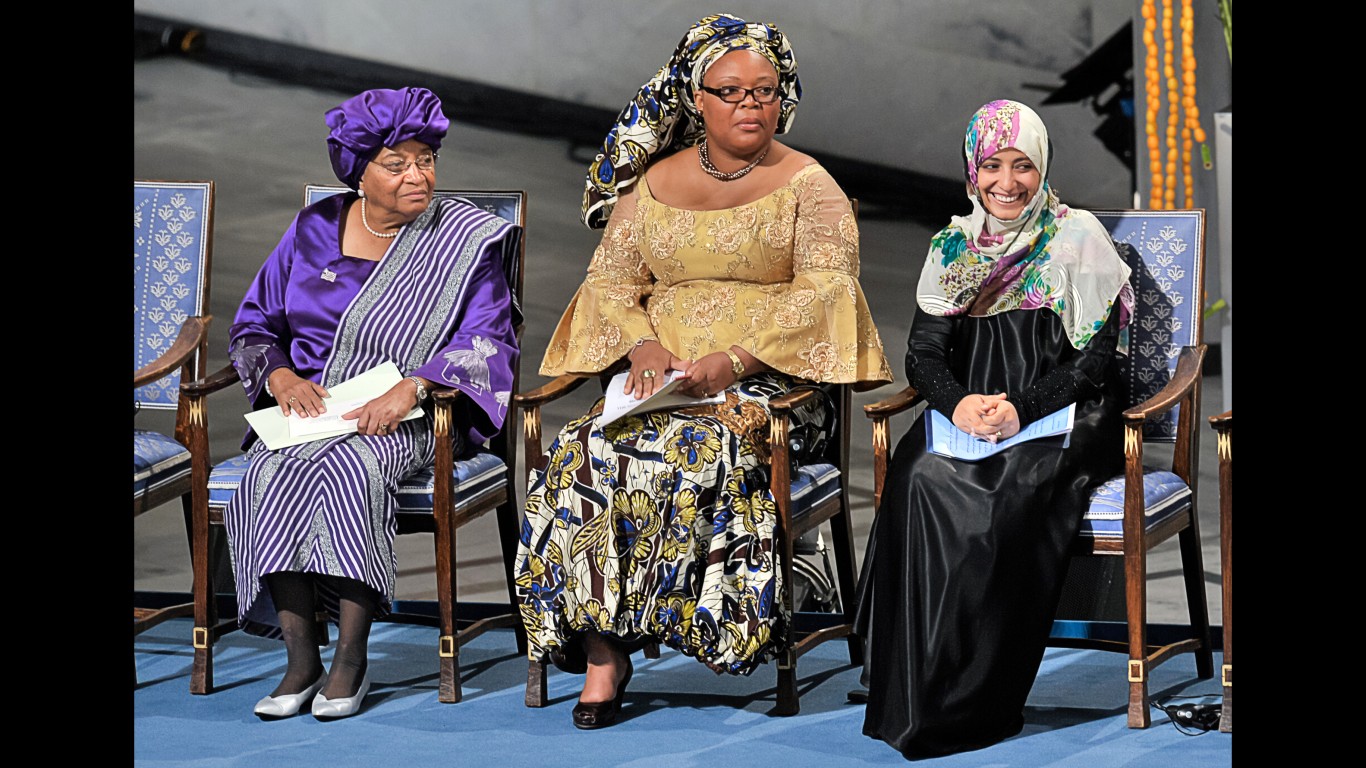
3 women share award
Three women were awarded the Nobel Peace Prize in 2011. Ellen Johnson Sirleaf became the first female elected president on the African continent when she became the chief executive of Liberia. Along with Sirleaf, Liberian peace activist Leymah Gbowee, a social worker who helped those suffering from the horror of civil war in Liberia, and Tawakkol Karman, a journalist fighting for civil liberties in Yemen, shared the award.
[in-text-ad]
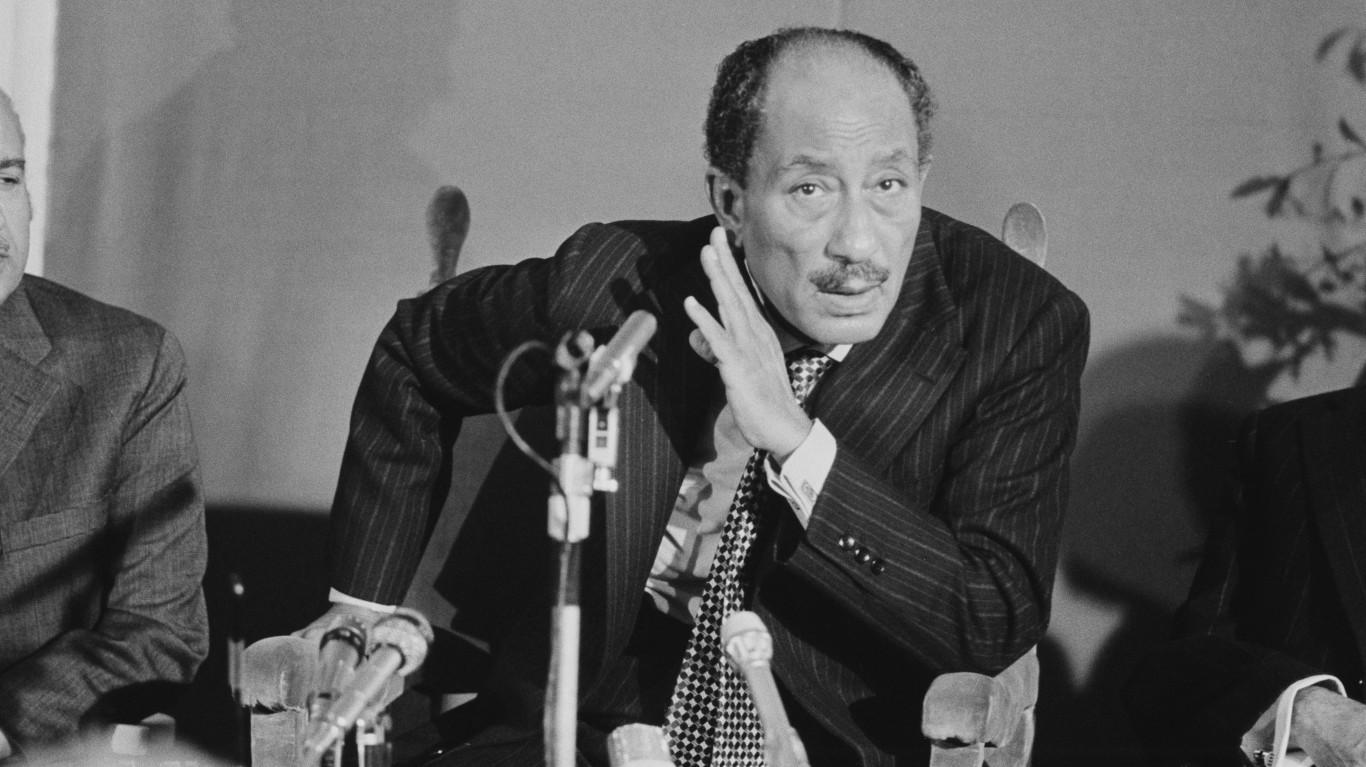
Sadat slain after winning Nobel
President Anwar el-Sadat of Egypt shared the 1978 Nobel Peace Prize with Israeli Prime Minister Menachem Begin. Their ongoing negotiations led to the signing of a peace treaty between Israel and Egypt in 1979, the first such accord between the Jewish state and any Arab nation. Some in Egypt opposed reconciliation with Israel, and in October 1981, Sadat was assassinated during a military parade.
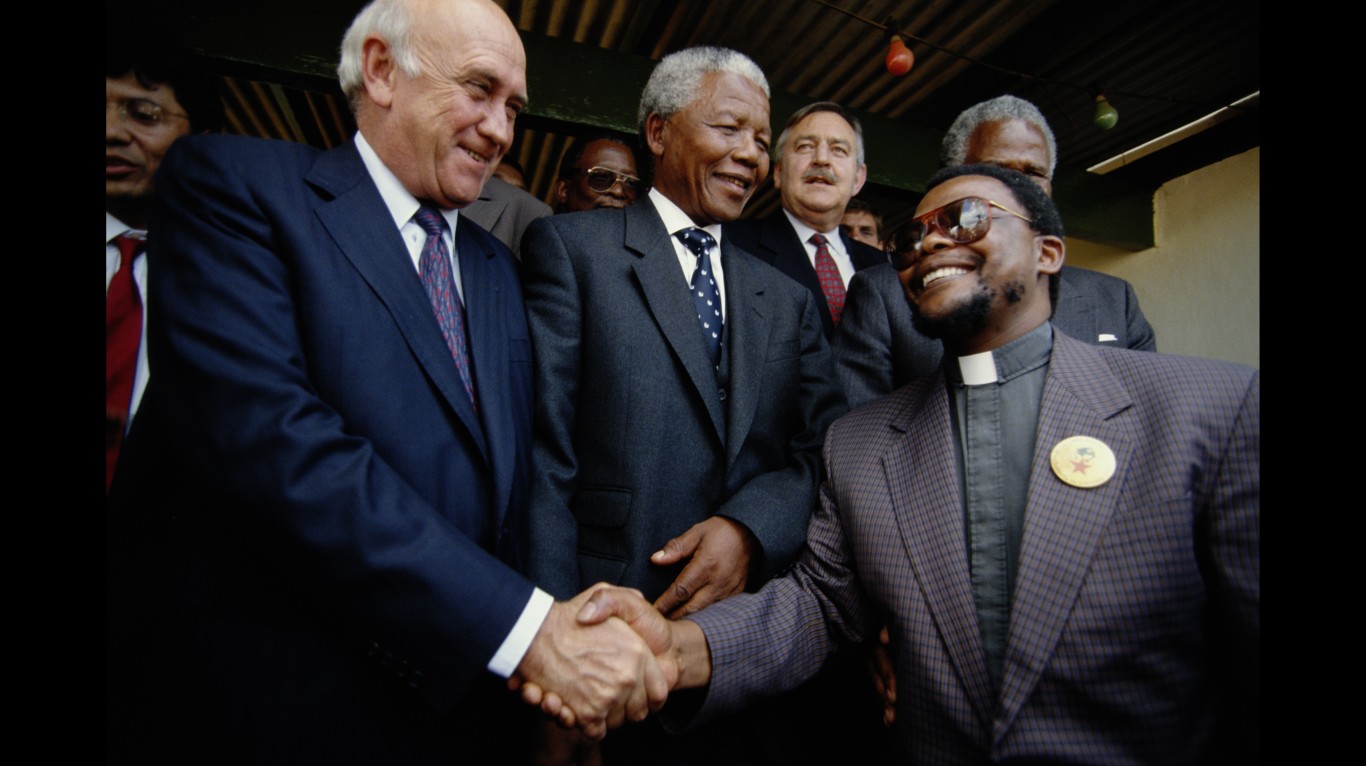
Apartheid victors honored
Nelson Mandela, South Africa’s symbol of freedom and resilience and the leader of the African National Congress, shared the 1993 Nobel Peace Prize with former South African President Frederik Willem de Klerk, the man who freed him from prison. Both men worked toward ending apartheid in South Africa and strove for peaceful transition to black majority rule.
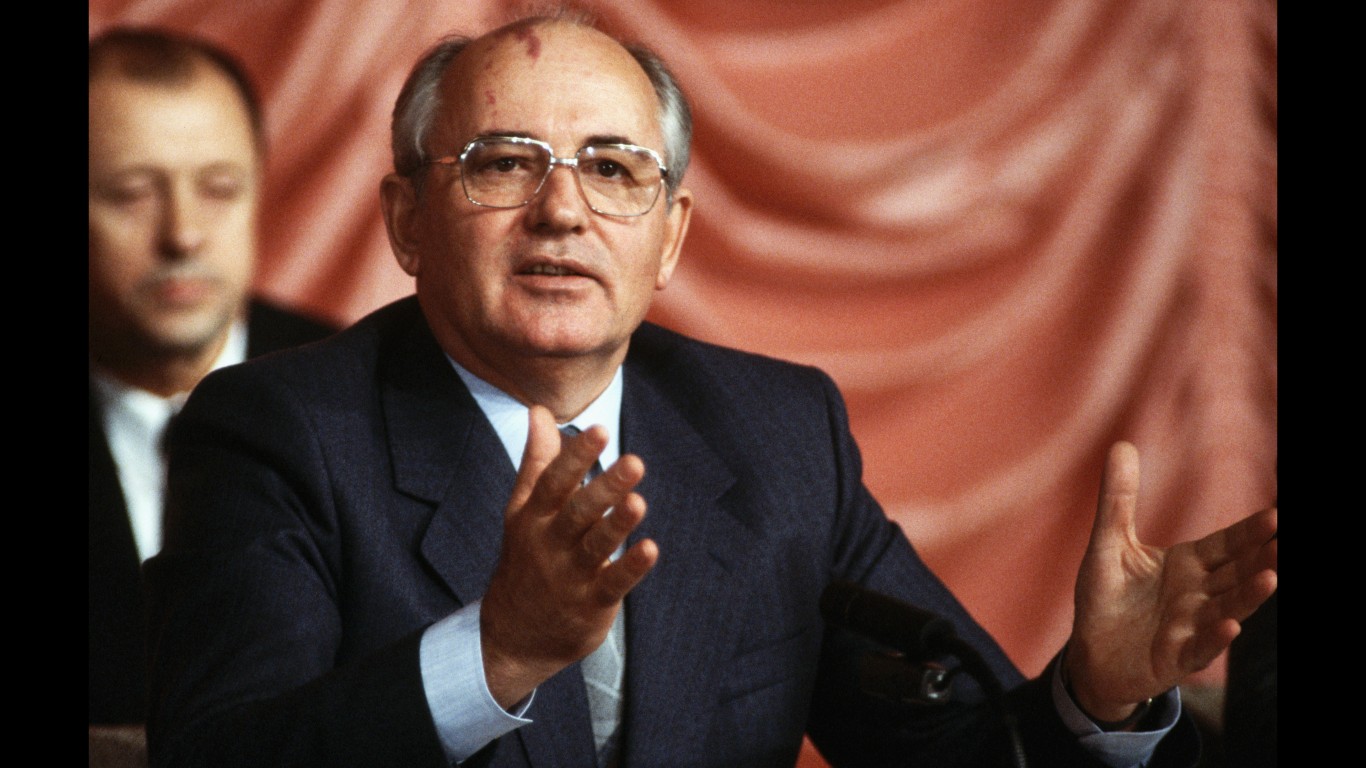
Gorbachev cited for ending Cold War
Mikhail Gorbachev, the former General Secretary of the Communist Party of the Soviet Union, won the 1990 Nobel Peace Prize for his efforts in supporting peaceful political change in Eastern Europe, working toward disarmament, withdrawing Soviet troops from Afghanistan, and helping to end the Cold War.
[in-text-ad-2]
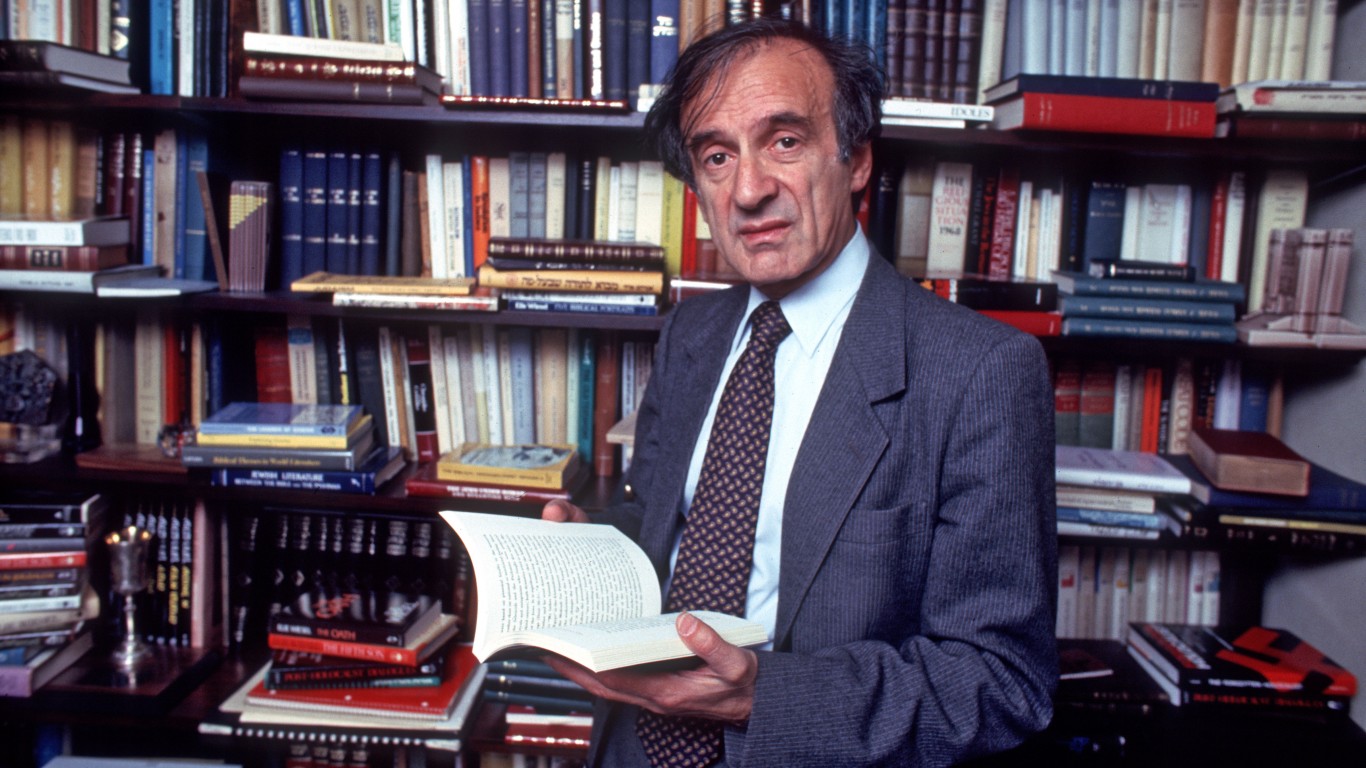
Holocaust survivor won Nobel Peace Prize
Elie Wiesel, who survived Nazi death camps to bear witness against the horror of the Holocaust, was awarded the Nobel Peace Prize in 1986. The Nobel Committee noted that ”Wiesel’s commitment, which originated in the sufferings of the Jewish people, has been widened to embrace all oppressed peoples and races.”
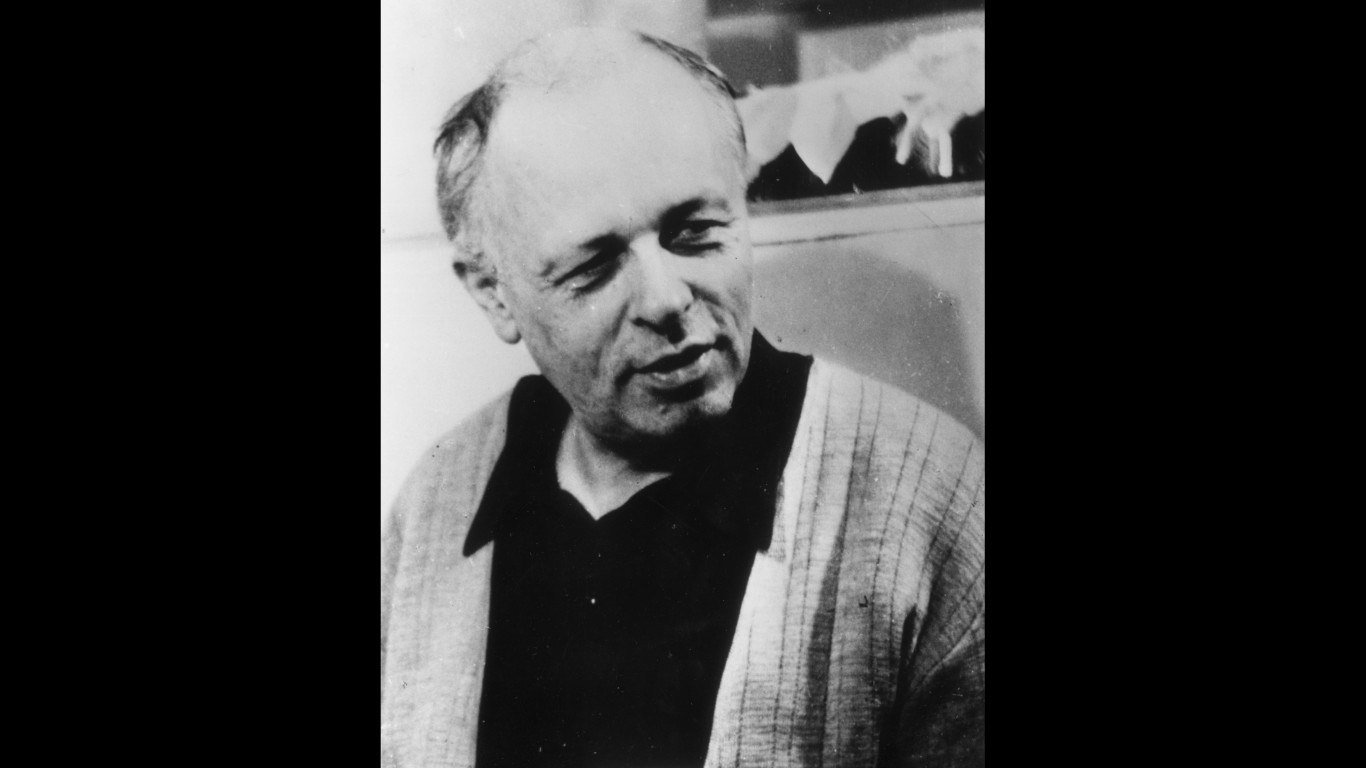
Dissident physicist won Peace Prize
Andrei Sakharov, the father of the Soviet hydrogen bomb, and a dissident, won the Nobel Peace Prize in 1975 for advocating disarmament, peace, and human rights. The Soviet leadership was angry over Sakharov’s winning and preventing him from leaving the country to accept the award in Oslo. Sakharov’s wife received it on his behalf.
[in-text-ad]
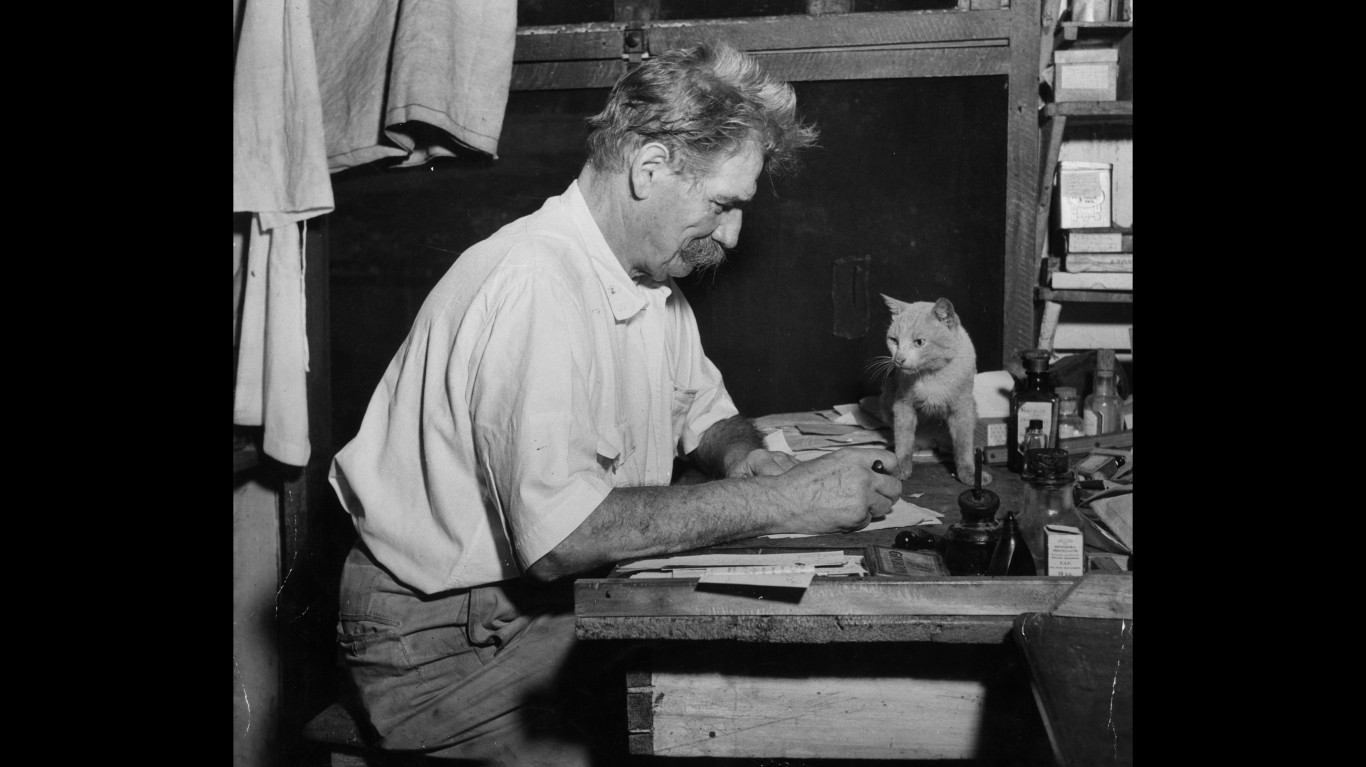
High praise for humanitarian
Albert Schweitzer won the Nobel Peace Prize in 1952 for his humanitarian work in Africa. The Nobel Committee was fulsome in its praise of him. “Albert Schweitzer will never belong to any one nation. His whole life and all of his work are a message addressed to all men regardless of nationality or race.”
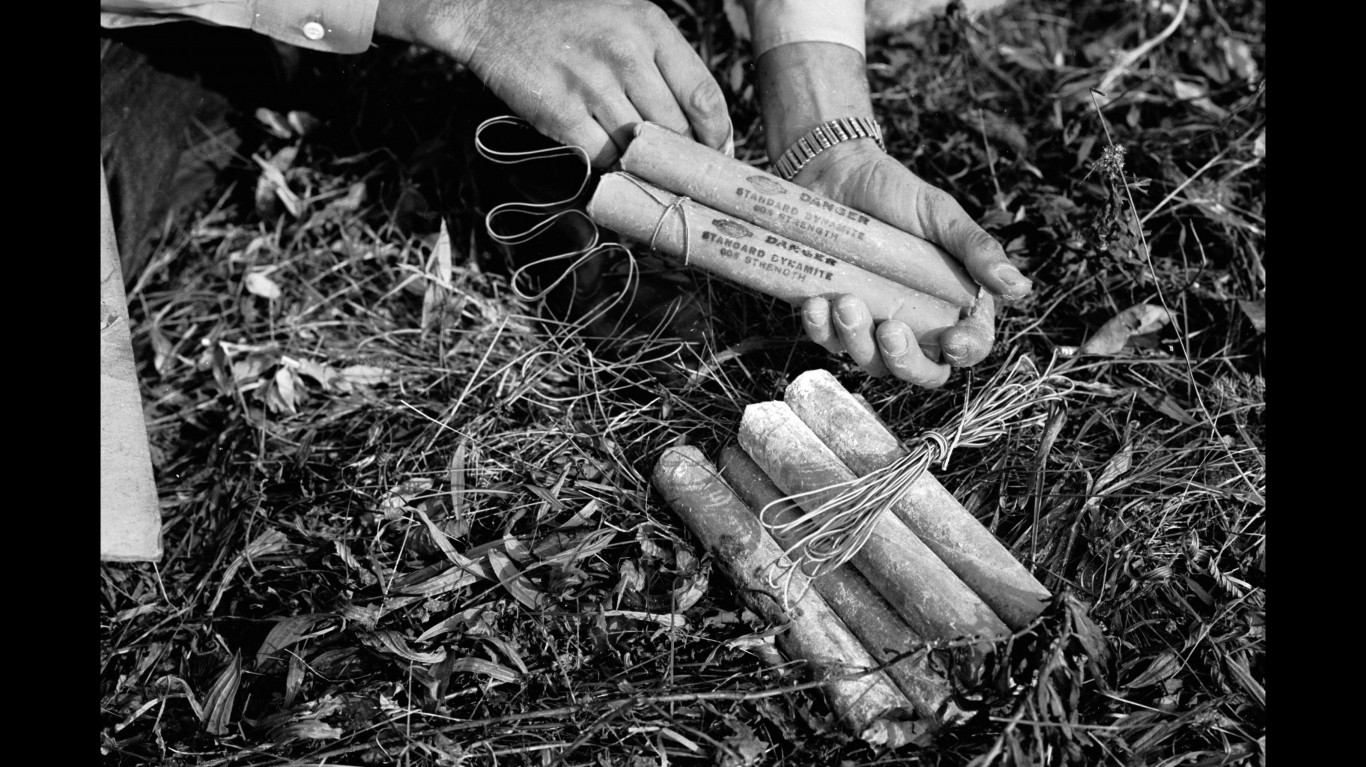
Nobel invented dynamite
An irony of the Nobel Peace Prize is that its creator, Albert Nobel, invented dynamite. He patented the nitroglycerine-based explosive dynamite in 1867, one of his 355 patents.
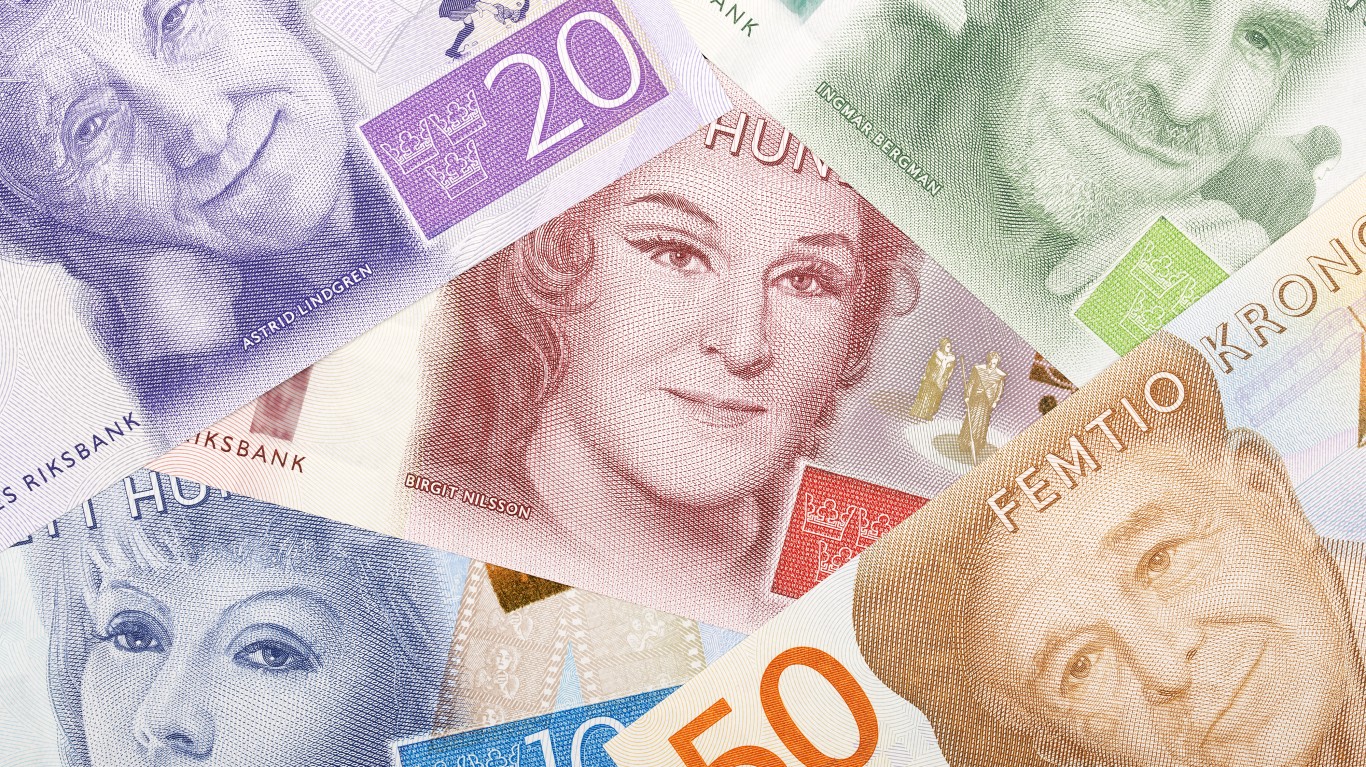
Big payday
The monetary award of the Nobel Peace Prize in 2019 is 9.0 million Swedish kronor, or about $912,000.
[in-text-ad-2]
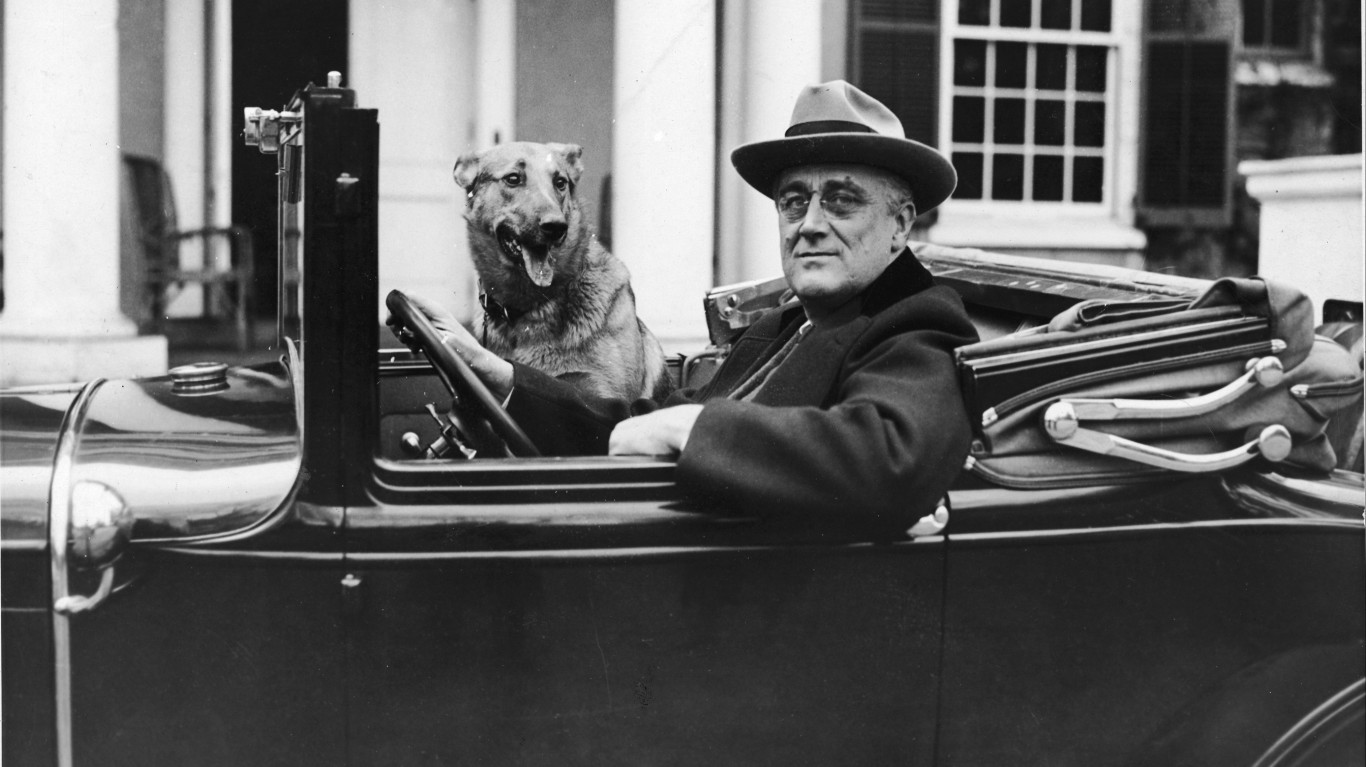
American political figures who did not win
These American political leaders were nominated for the Nobel Peace Prize but did not win: Presidents William Howard Taft, Warren G. Harding, Herbert Hoover, Franklin D. Roosevelt, Harry S. Truman, and Dwight D. Eisenhower; and the foreign ministers Charles Hughes and John Foster Dulles.
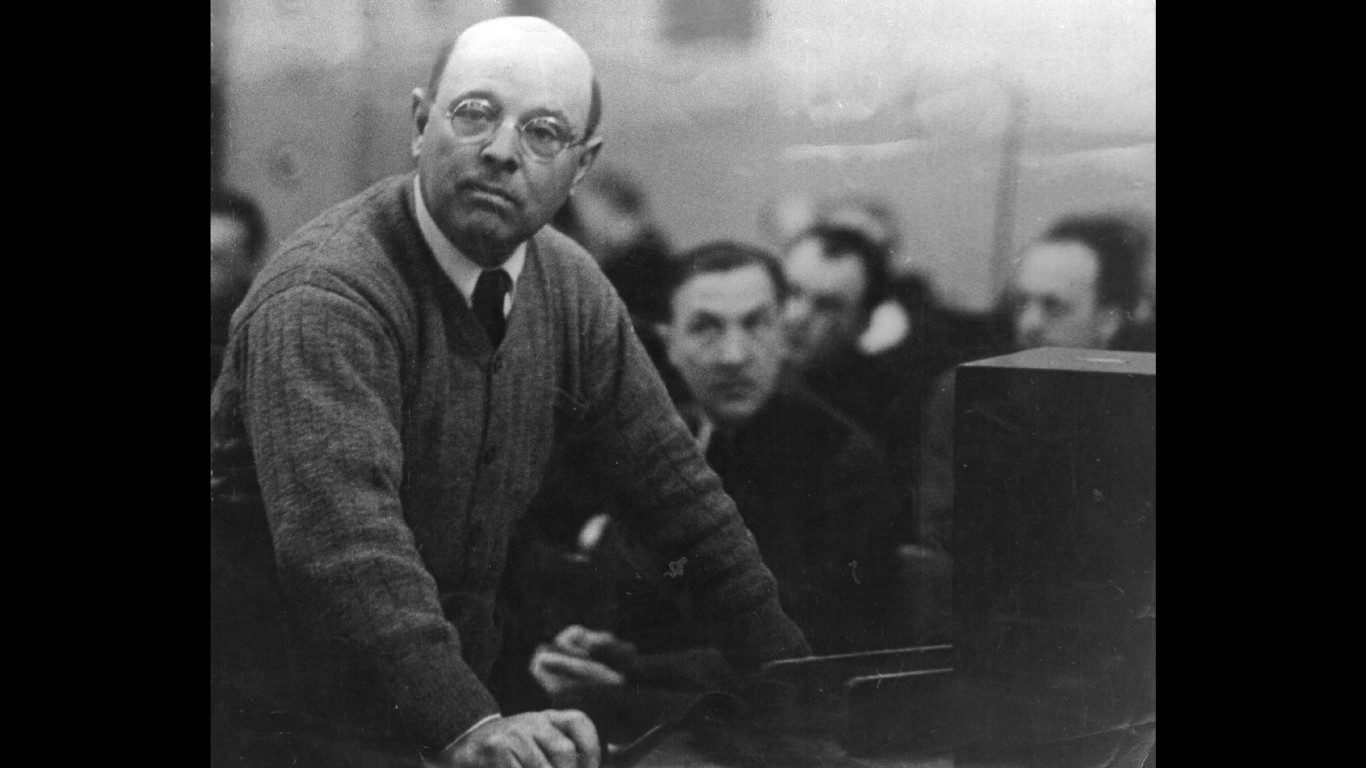
Artists nominated
Artists who were nominated but did not win the Nobel Peace Prize include: Leo Tolstoy (Russian author); E.M. Remarque (German author); Pablo Casals (Spanish Catalan cellist and conductor); and Nicholas Roerich (Russian artist/philosopher).
[in-text-ad]
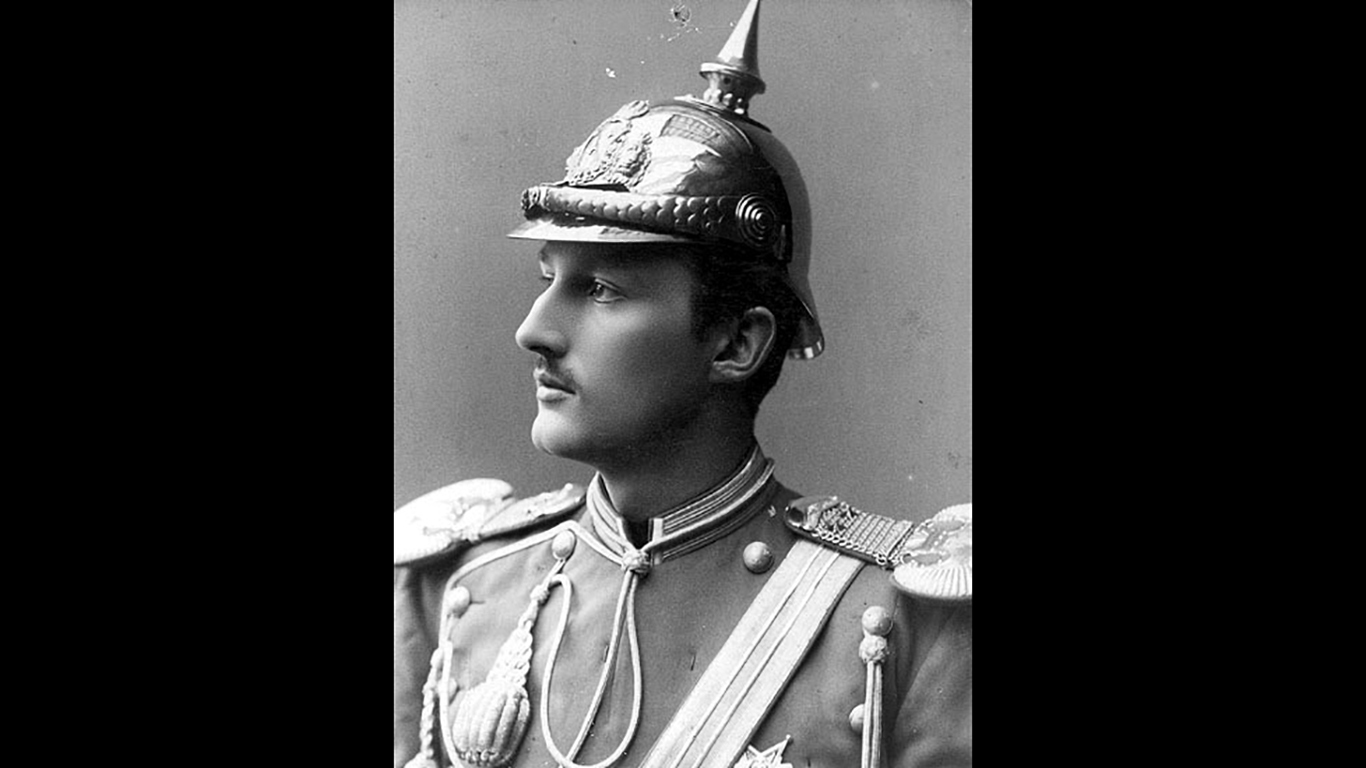
Royals in running for award
Some members of European royalty were Nobel Peace Prize nominees. They include: Tsar Nicholas of Russia; Prince Carl of Sweden; King Albert I of Belgium; Emperor Haile Selassi of Ethiopia; King Paul I of Greece; and Princess Wilhelmina of the Netherlands.
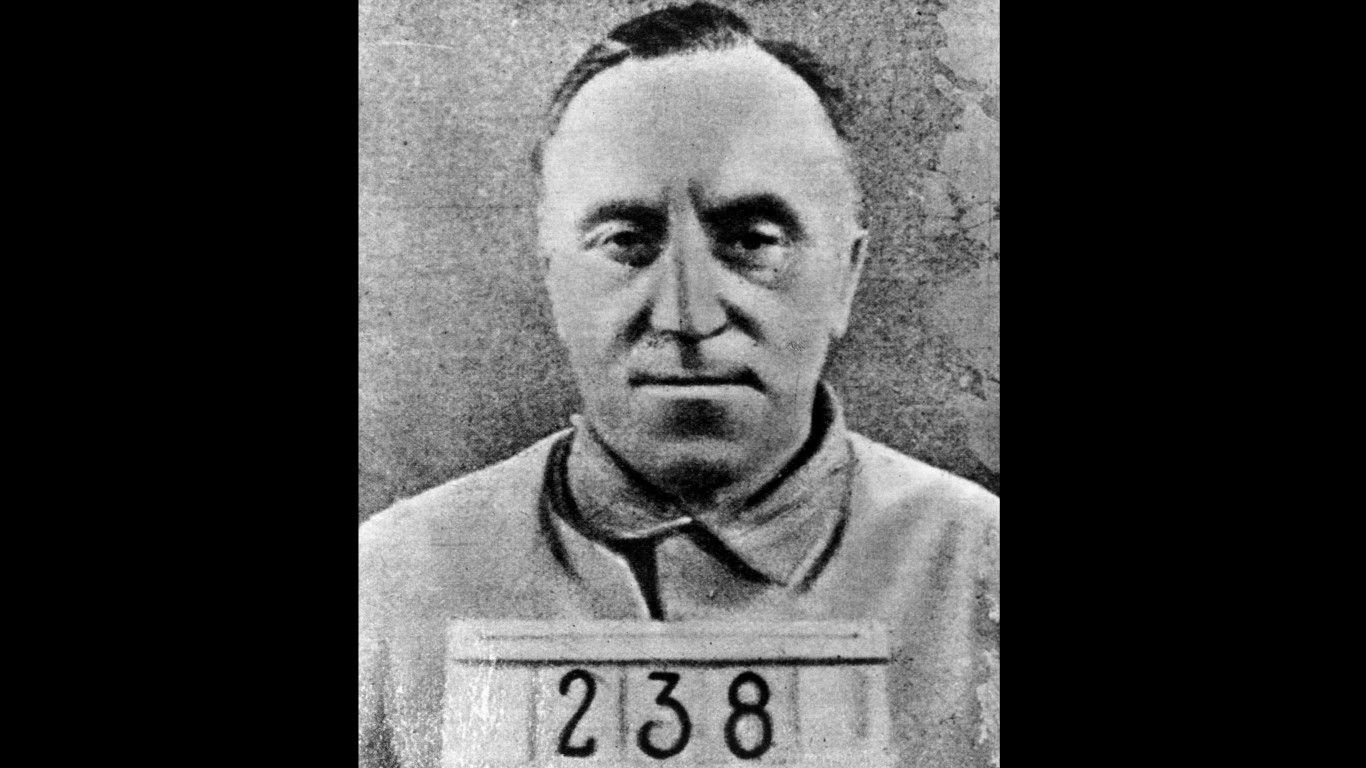
Hitler protests award to activist
The Norwegian foreign minister and former prime minister of Norway had excused themselves from the Nobel Peace Prize committee before the prize was awarded to German journalist and peace advocate Carl von Ossietzky in 1936 to emphasize the political neutrality of the decision. The Nobel Foundation initially said no nominee met its criteria in 1935, but later awarded the prize to von Ossietzky, provoking protest from Nazi Germany leader Adolf Hitler. The following year, the Norwegian Storting officially banned members of government from serving on the committee.
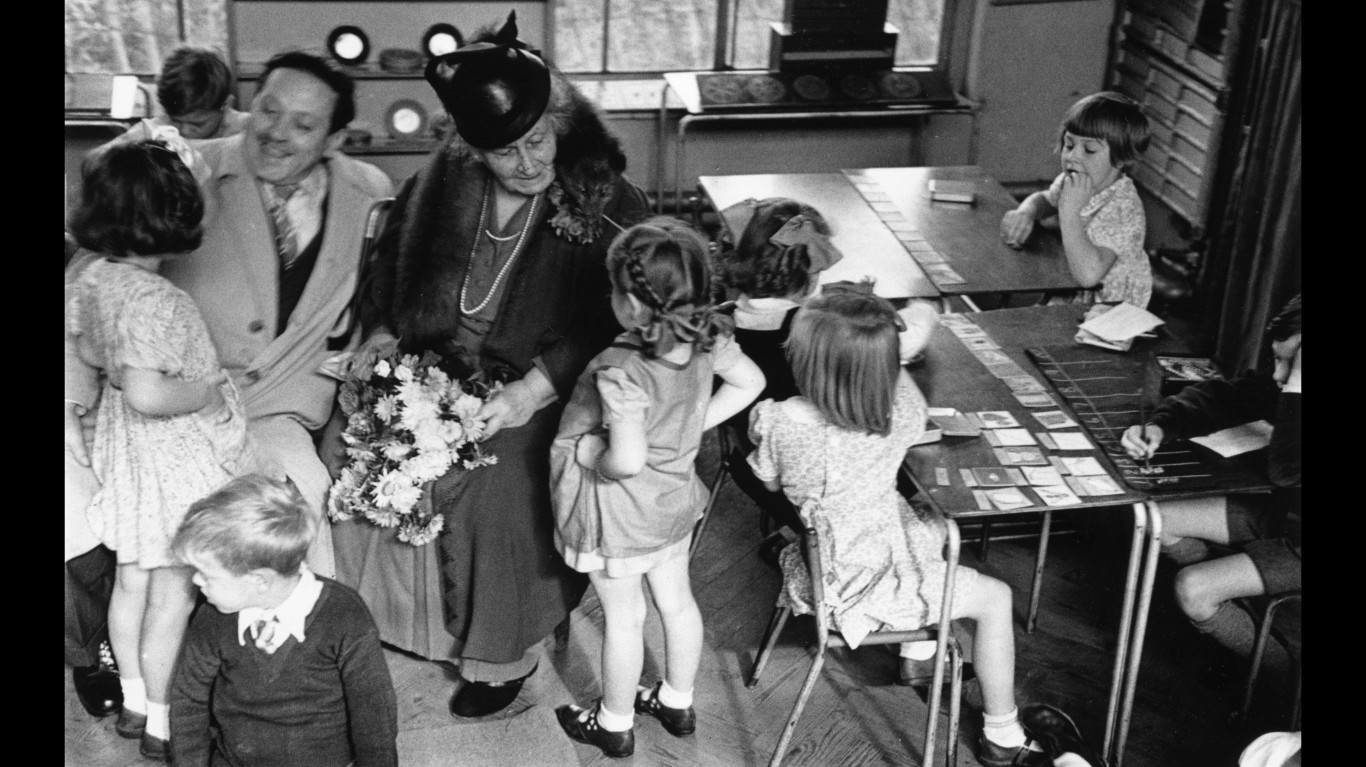
Nominated notables
Other noteworthy people from the 20th century who were nominated for their work for peace include British economist John Maynard Keynes; Pierre de Coubertin, founder of the International Olympic Committee and father of the modern Olympic Games; Lord Bade-Powell, founder of the Scout movement; and educator Maria Montessori.
[in-text-ad-2]
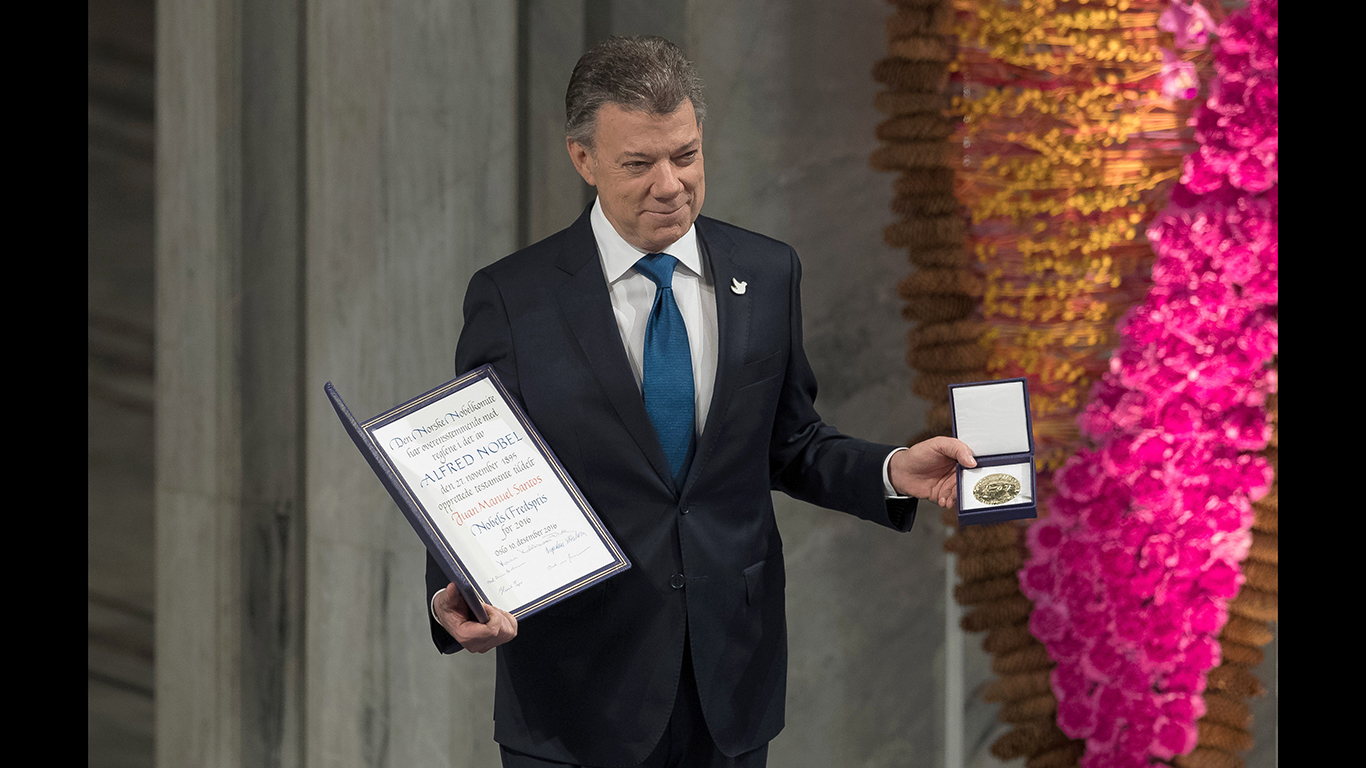
Most nominees
The highest number of Nobel Peace Prize nominees ever was 376 in 2016.
Finding a qualified financial advisor doesn’t have to be hard. SmartAsset’s free tool matches you with up to 3 fiduciary financial advisors in your area in 5 minutes. Each advisor has been vetted by SmartAsset and is held to a fiduciary standard to act in your best interests. If you’re ready to be matched with local advisors that can help you achieve your financial goals, get started now.
Thank you for reading! Have some feedback for us?
Contact the 24/7 Wall St. editorial team.